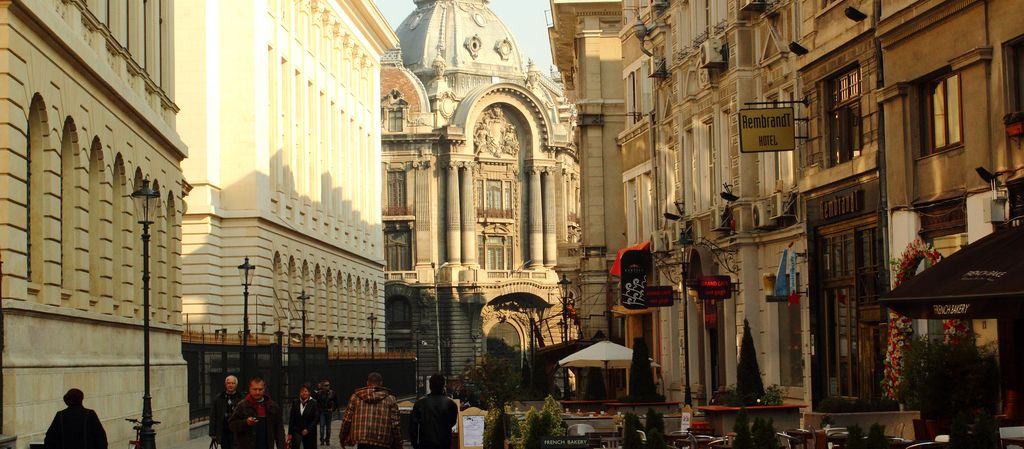

A practical, up-to date travel guide
2024 travel guide for first time visitors in romania.
If you're planning to visit Romania in 2024 for the first time (or returning!) and are looking for a complete, up to date travel guide with essential advice and practical Romania travel tips to plan your holiday - this article is for you.
As locals we'll tell you the most important things to know about visiting Romania, up to date info about our country and the best way to plan an amazing holiday here! But first - is Romania worth visiting?
In short - YES! For the long answer - in this post we've linked to many of our articles about Romania's tourist attractions, best things to do, natural beauty, local culture and traditions.
So if you need help with planning your trip don't hesitate to contact us - that's what we're here for! We have a network of 50 best guides all over the country and created authentic Romanian experiences and trips you won't find anywhere else :)
This travel guide was last updated in January 2024. So, let's get started:
Table of contents
Quick facts about Romania
- 1. Entry requirements & visa
2. Romanian currency, exchange houses and card payments
3. is romania cheap to visit tourist budget and holiday costs, 4. romanian geography and natural attractions, 5. getting here. public transportation in romania, 6. weather. best time to visit romania, 7. medical emergencies, 8. is romania safe to visit, 9. where to stay in romania. hotels and guesthouses, 10. romanian people and society, 11. romania travel tips no one will tell you about, 12. romania means much more than dracula castle..., 13. open your mind and heart to romanian people.
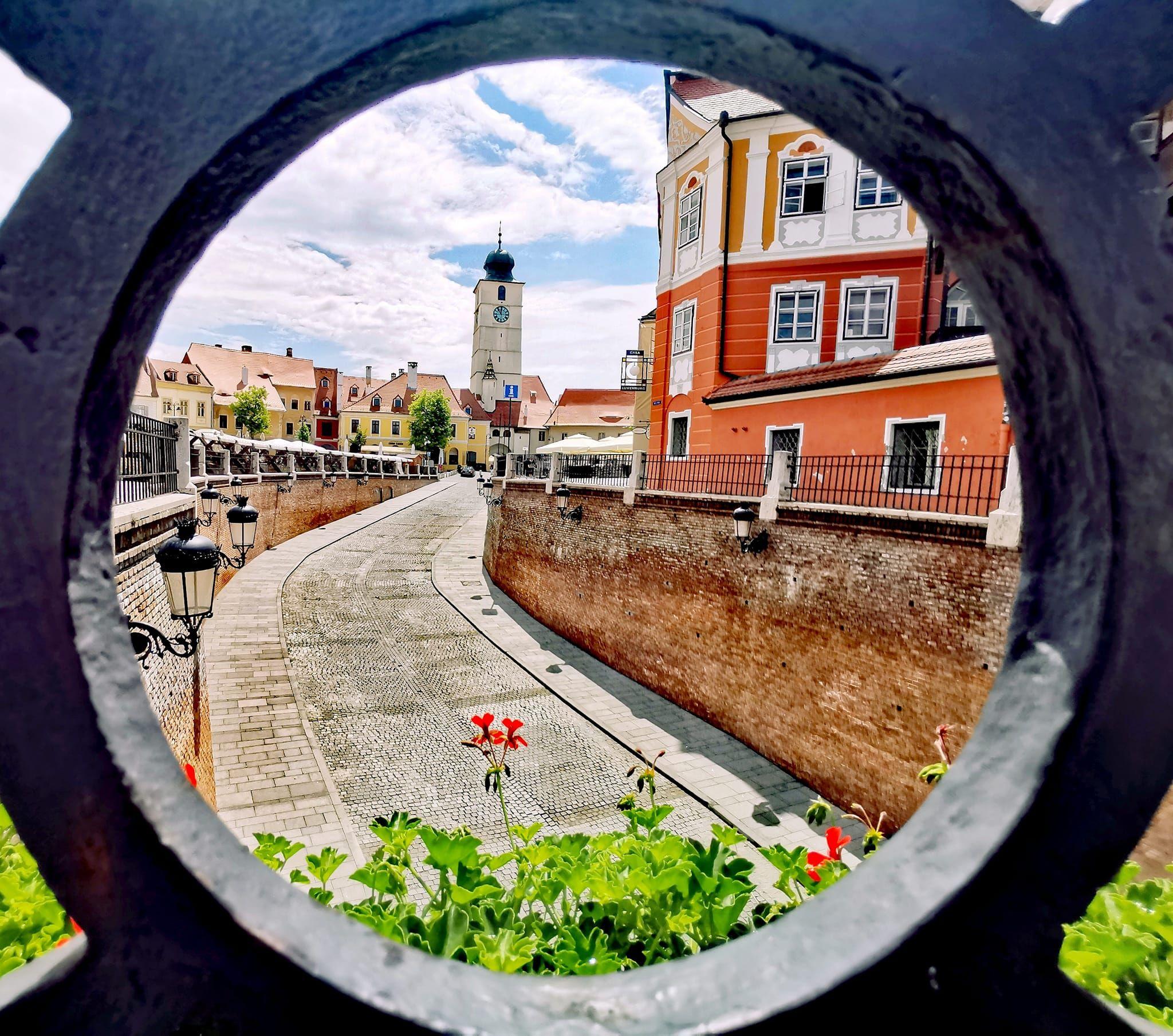
The Lower Town of Sibiu
Located in Eastern Europe, Romania is the 9th largest European country by surface with a very rich and diverse geography as you'll soon find out. It ranks 6th by population (approx. 19 mil) composed of 85% Romanians and other ethnic minorities such as Hungarians, Germans, Italian, Turks or rroma.
Romania is a NATO member since 2004 and part of the European Union since 2007. The local time in Romania is Eastern European Time (EET) +02:00 GMT
Our country is made up of 3 historical regions: Wallachia (South), Transylvania (North-West) and Moldova (North-East). The capital of Romania is Bucharest with approx. 2,2 mil. The next major cities are Cluj-Napoca and Iasi, the unofficial capitals of Transylvania and Moldova.
There are many reasons why it's worth visiting Romania. Main attractions and tourist destinations include:
- lots of famous castles starting with the famous Bran Castle, Corvin Castle or the ex-royal residence Peles Castle built by King Carol I, and 140 more!
- interesting UNESCO World Heritage sites: the 400-year old Wooden Churches of Maramures, the 500-year old Painted Monasteries of Bucovina, the 700-year old Sighisoara Citadel or the 2,000 year old ruins of Dacian Fortresses
- incredible nature with great hiking opportunities in the wild Carpathian Mountains which earned our country the title of Europe's last wilderness reserve or relaxation at the sandy beaches of the Black Sea coast
- eclectic sights mixing communist landmarks such as the huge Palace of Parliament ) with historic sites and medieval cities such as Brasov, Sibiu and Targu Mures in the center of the country
- unique sights such as the impressive underground Turda Salt Mine , the haunted Hoia Baciu forest or the thrilling Transfagarasan Highway
- the miracle that is the Danube Delta - 3rd best preserved biosphere in the world and home to over 300 species of birds
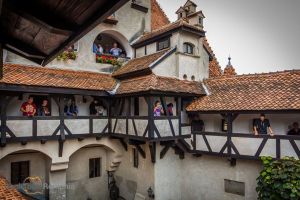
Top attractions in Romania Tours
View this post on Instagram A post shared by Romanian Friend (@romanian_friend)
- the famous South-East Transylvania with its main attractions: Saxon villages and fortified churches, castles, medieval towns
- the traditional Maramures region (upper North-West) with its Wooden Churches and folk costumes
- the spiritual Bucovina region (upper North-East) with its 500-year-old Painted Churches and egg-painting traditions
If you want an authentic experience of Romanian countryside you'll need at least 2 full days in any of these regions and to travel by car.
Romanian history is like Game of Thrones but without the fantasy part: at the intersection of Ottoman, Austro-Hungarian and Russian (later Soviet) empires, our history is full of twists and turns in the middle ages. We were always caught between the wars, domination and power plays of foreign power (hence the many castles in Romania and historical sites!).
Our history is a testimony of our nation's resilience, cultural identity and goal to unite the three historical regions into one independent state which happened only in 1918.
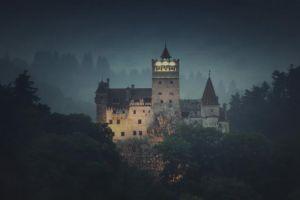
Castles, Fortresses & Historic Tours
As for Romanian culture and people, you'll see Romanians are very friendly and hospitable who love enjoying life, food and socialising. Our Latin blood and cultural affinity for Western Europe lifestyle mixes with a Balkan vibe and Eastern traditional values inspired by our Christian Orthodox religion. The best Romanian movies do a great job of showing this.
Although there are some prejudices and misconceptions about our country and people, those who've visited our country were pleasantly surprised and impressed by what it can offer - and we hope you'll be too! And if you're wondering who are some famous people from Romania - you might be surprised!
Now, on to the practical stuff with things to know and the latest information about visiting Romania:
1. Entry requirements & visa
Entering Romania is quite easy as visa requirements for tourism or short stays under 90 days are relaxed. On the Ministry of Foreign Affairs website you'll find lists of countries for which a visa is or not required.
Besides having a valid passport (or ID if you're from the European Union), for other travel documents needed also check the conditions of entry .
Besides European Union nationals, citizens from the United States, United Kingdom, Canada, Israel, Australia Singapore, don't need a visa when they enter Romania if planning to stay under 90 days. Make sure to double check entry requirements on your own too.
Holders of a Schengen visa with multiple entries (and slots still available and valid!) are not required to apply for a Romanian visa for entry.
You can apply for a visa online on the Ministry's (only) official website .
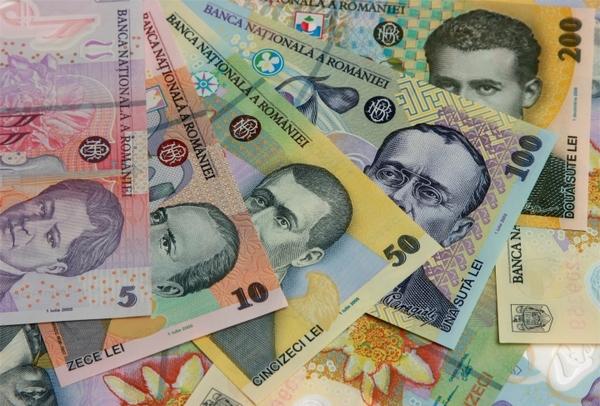
The Romanian currency is RON or informally called Lei. It comes in plastic, almost indestructible notes of 5, 10, 50, 100, 200 and 500. There are also some smaller-don’t-matter coins.
Although some prices in Romania may be displayed in Euro using Euros for cash payments is NOT accepted and if someone offers you an ‘in-house’ exchange rate - you should check official rates before accepting.
- 1 Euro is about 5 Lei and 1 USD is about 4,6 Lei - check official exchange rates published by the Romanian National Bank here )
Paying by card is very safe and widespread in Romania in all shops, restaurants, hotels or tourist attractions. But not in taxis, farmers market or artisan fares where you need to have cash. Debit cards issued by VISA, MasterCard and Maestro are widely accepted everywhere, but American Express cards may not always work. If you're using credit cards from a non-EU bank, make sure it's authorised for international payments.
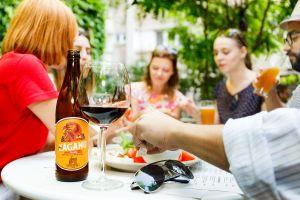
Bucharest Street Food Tour: Farmers' Markets & Hidden Streets
Start from: University Square
When travelling in the country or in the mountains cash is king so always have Lei with you and plan your budget ahead. Some guesthouses or restaurants in the countryside don't accept card payments, especially credit cards, so ask in advance.
There are plenty of ATMs in Romania (bancomat) to withdraw money from. The most common banks with safe & secure ATMs are BCR, BRD or Banca Transilvania. For fees, check with your local bank. In the countryside or mountainous areas it's harder to find ATMs but every village or small town should have one near the city hall.
What currency to bring when travelling to Romania: Euros, US dollars, UK pounds or Swiss francs are the easiest to convert anywhere. When you arrive don’t use exchange offices located in airports for more than 20 € / $ / £ for taxi fare as they usually have very bad rates aimed at unsuspecting tourists. You'll find lots of exchange bureaus (casa de schimb) in Romania, easily recognisable by their yellow or white street boards indicating rates offered.
- Pro tip: rates at exchange bureaus are usually better than at banks and 90% of them don't charge any fees
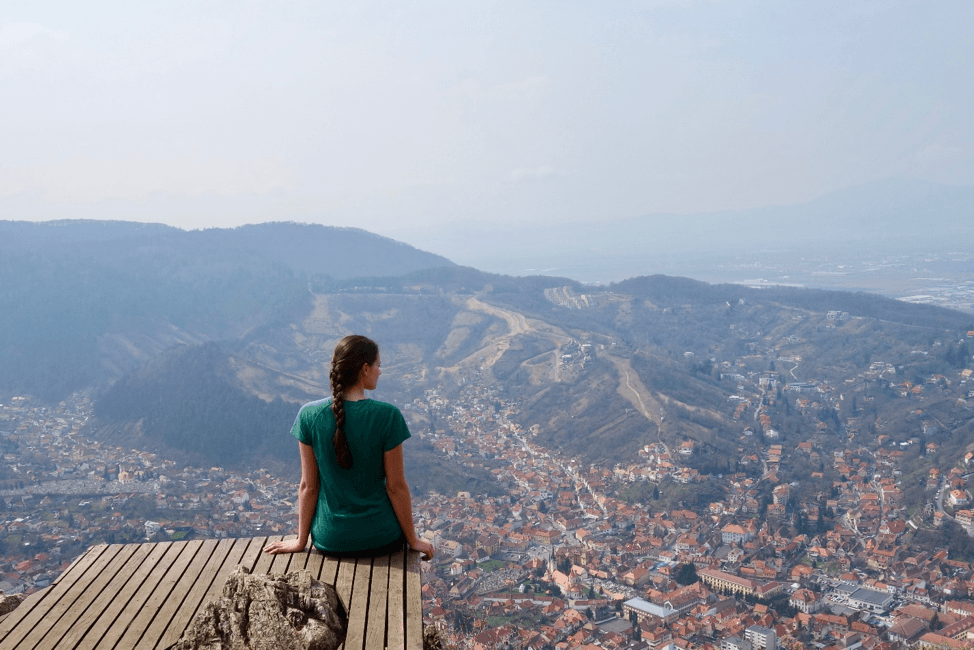
View over Brasov, one of the best preserved medieval towns
Up until 2020, Romania used to be known as a cheap destination but this changed in the last 3 years... why?
The hospitality and tourist sector were strongly affected after two hard years of Covid-19 and a low 2022 caused by the invasion of Ukraine war-scare.
Many guides had to get regular jobs while small operators and guesthouses lowered their value-for-money ratio and/or closed shop. Meanwhile, the 'surviving' businesses and guides raised their prices to keep up with demand and rising costs.
- We have a network of 50+ guides and partners all over the country, so we witnessed the disaster firsthand while trying to stay alive. Since 2017 our mission has been to support local communities by including their services in our tours. So if you book a tour with us you'll directly help small businesses and people in Romania!
The wider European economic context (energy crisis, inflation) coupled with higher local taxes meant everything got more expensive in Romania by 20-30%.
The good news (ironically!) is prices increased all over Europe - and the world too, since the global economy is not doing great. So on a relative scale Romania is still cheaper to visit compared with most European countries if you plan your holiday well or go off-the-beaten path. Key info:
- generally, the value-for-money you get in Romania for tourist activities (e.g. guided tours, wine tastings, fine dining, SPA etc) is very good
- prices in major cities where the main attractions for tourists are ( Bucharest , Cluj-Napoca , Brasov and Sibiu ) or on the Black Sea Coast are higher compared to other ones, but on the flipside they have lots of choices for every budget, so shop around!
- in small towns and villages, prices for meals and accommodation are on average 20-30% lower
A reasonable budget per day if you're planning to travel to Romania is between 30-60 Euro for accommodation, meals and small expenses. In restaurants a main course is around 25-50 Lei (5-10 Euro), soups around 10-20 Lei (2-4 Euro), soft drinks start from 1,5 Euro while alcohol from 2 Euro. Entrance fees to tourist attractions range between 4-15 Euro
For a better idea of how expensive Romania is, for a 3-day city break in Bucharest or Cluj-Napoca budget around 200 - 350 Euro in total for 2 people (excl. flights and guided tours) with generous meals and drinks included, tickets and local transport. A 7-day guided tour starts from 2,000 Euro per person for 2 people, depending on hotels, activities and itinerary.
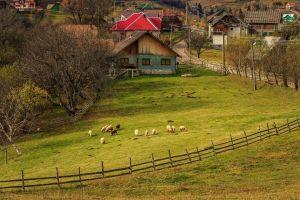
3-Day BEST of Transylvania Tour: Brasov, Sighisoara, Bran & Viscri
Start from: Bucharest
Tipping in Romania is very common and usually expected. Service fees or coperto is not included when going out in restaurants (unless expressly mentioned!) and a 7-10% tip on top of the bill is common. If you’re really happy with the service you can go up to 15%.
Tips for small, personal services (body care & cosmetics, hotel concierge, drivers, etc.) are also welcomed. Tipping tour guides is also common on average 10-15% of the tour price. And if the guide doesn't say anything (because they're usually uncomfortable asking!) - just do what feels right to you.
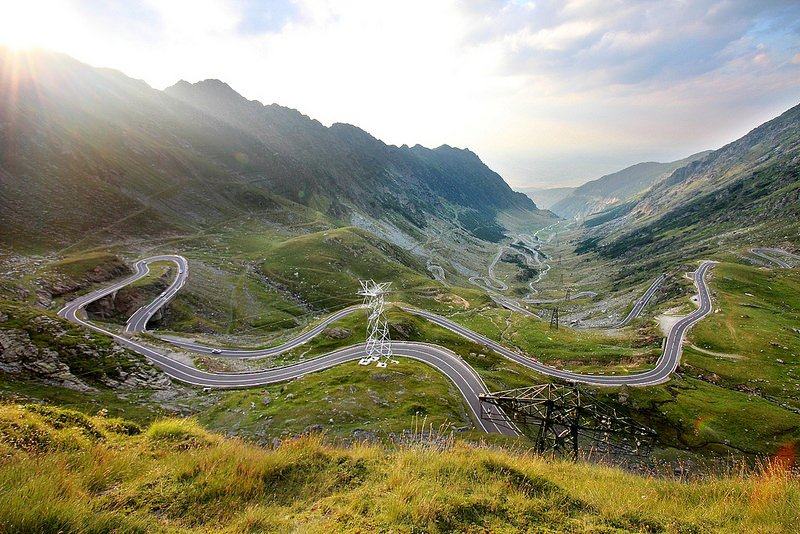
This is Transfagarasan Road one of Romania's top attractions
Romania has been blessed with a rich and diverse geography with lots of natural attractions which makes it one of the most beautiful countries:
- the Black Sea coast with fine sandy beaches
- the Danube River creates the Danube Delta with vast waterways and lakes
- picturesque hills and old-growth forests in Transylvania
- the wild, impressive Carpathian Mountains (also known as Transylvanian Alps)
Check our selection of hiking tours with licensed guides
Going as high as 2,544m (at Moldoveanu, the highest peak) the Romanian Carpathians and their foothills take up almost 45% of our land surface.
With over 100 peaks over 2.300m altitude, lots of trails for all difficulty levels offering incredible natural landscapes and a wildlife population that earned us the title of Europe's last wilderness reserve - this is a great place for your next hiking holiday. Our article on best hiking trails in Romania will tell you more.
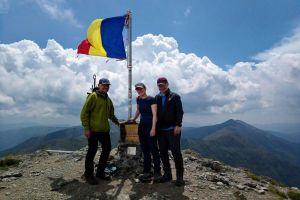
7-Day Peaks of Romania [Shared Group Trip]
Start from: Brasov
In terms of natural attractions, besides the many national parks (Piatra Craiului, Bucegi, Apuseni being the most famous), I would also mention the Muddy Volcanoes , the Romanian Sphinx or the 7 stairs canyon.
The simplest and most convenient way to travel to Romania is to fly here. Besides the main airport (Bucharest Otopeni), there are 9 airports in big cities served by low cost airlines (Wizz Air and Ryan Air mostly) with flights to over 100 destinations in Europe. This is because there are close to 4 million Romanians living abroad so there's a lot of commuting. If you plan well and in advance, you can find tickets as cheap as 60 Euro round-trip.
- Local tip: check our guide on Bucharest airport so you have a 'soft landing' here :)
Besides a Southeastern Europe and Romania road trip, you can also get here using direct trains from Vienna, Budapest, Belgrade, Sofia or Thessaloniki. We prepared an article on travelling to Romania with additional information on this topic.
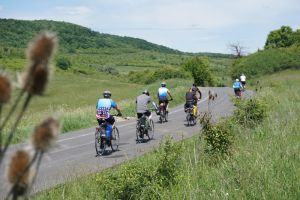
2-Day Transylvania Bike Trails Tour: Viscri & Saxon Villages
Public transport in Romania is a little more challenging. Unfortunately road and railway infrastructure is underdeveloped. There are few highways and mostly one-lane roads which are heavy with traffic (including trucks) so driving 100 km by car can take 2h. And though there are lots of train stations in the whole country, because tracks are old trains go slow (average of 80 km/h). At least they're cheap!
For short distances (>200 km) a car, train or bus is a good choice. For medium or long distances (over 300 km) you should consider breaking your itinerary or catching an internal flight (eg. from Bucharest to Cluj or Timisoara). Visitors to Romania are well advised to have travel insurance before getting here. Our guide on public transportation in Romania will have more info on this.
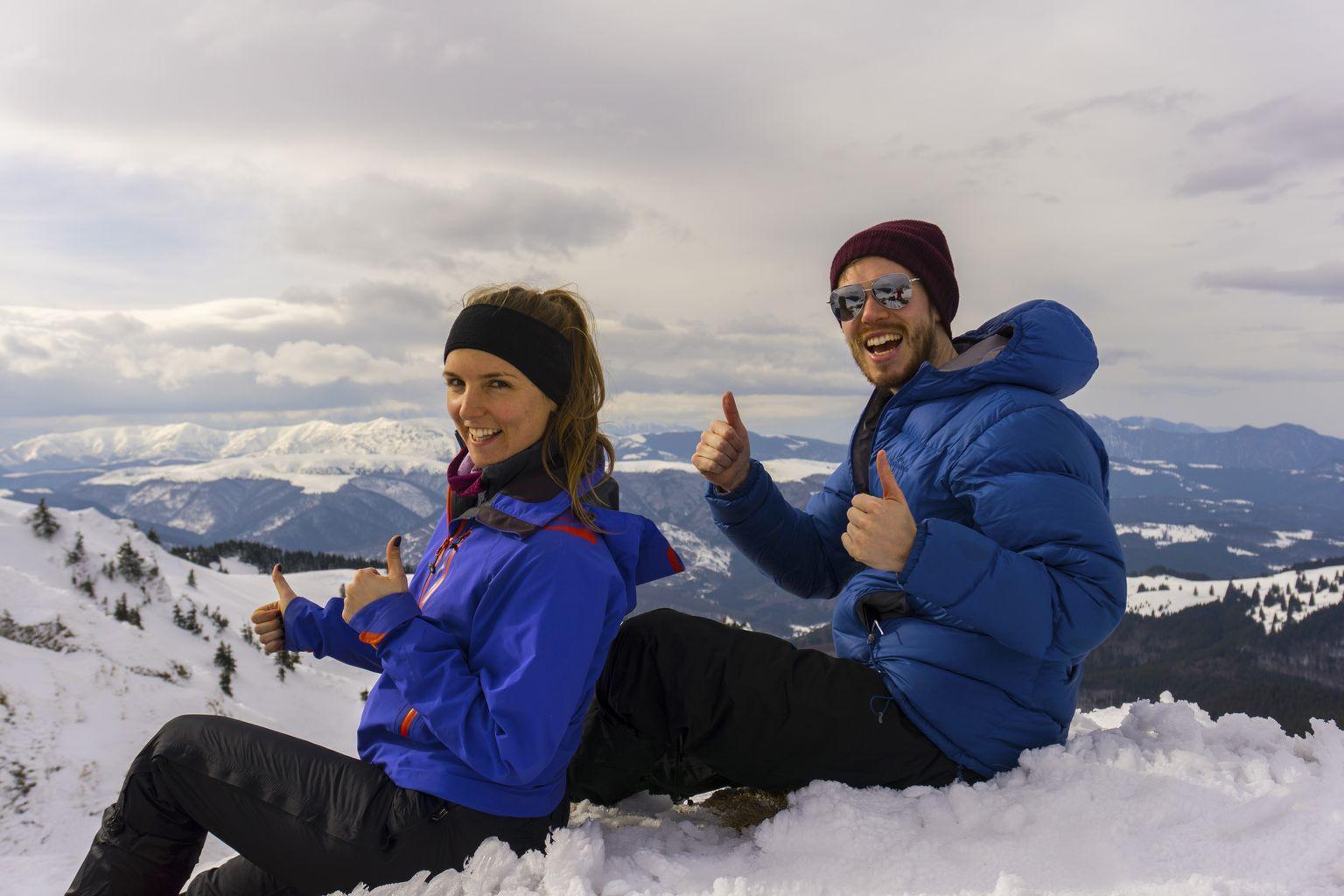
Romania has a temperate continental climate which used to be codename for standard weather. But in the last 10 years the effects of climate change are starting to show. We wrote a bigger article on the best time to visit Romania describing the weather and with visiting tips for each season.
In short, for sightseeing trips come anytime April - October when the weather is fair, warm and days are longer. Peak season for holidays is 1 Aug - 15 September so if you're planning to travel to Romania then, make sure to book everything in advance!
The best time to go hiking and for outdoor activities in general is from late Spring to mid October but this depends on where you're going. For example, in mountains at altitudes of over 2,000m (eg. Fagaras, Retezat or Bucegi) there can still be snow until late June and weather is unpredictable. High season for hiking is Aug-Sept when there's less rain and fair weather.
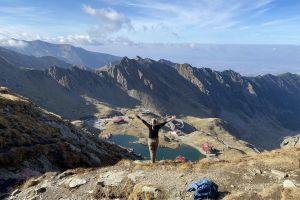
Transfagarasan Road & Hiking Day Trip in Fagaras Mts
For wildlife tours - we follow nature's rhythm. Animals - especially brown bears - are active from late Spring to late Autumn, depending on how warm and cold it is. The best time to visit with the highest chances of seeing wild animals is during Summer, but these trips usually have complex logistics, go into remote areas and are in high demand - so book them in advance!
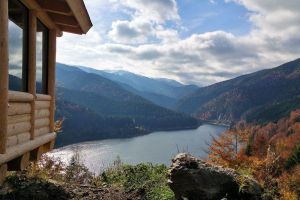
3-Day Hiking & Wildlife Trip at an Eco-Luxury Private Cabin in Fagaras Mts
Start from: Rucar, Arges county
- Local tip: our personal favorite time to visit Romania is Autumn: starting from early September a superb array of gold, orange and brown will cover the vast Carpathian woodlands
The best time to visit the Danube Delta is April - October when nature at its best: lush vegetation in full bloom, birds nesting or playing around and lots of fish.
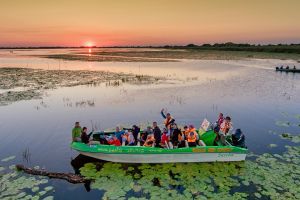
4-Day Danube Delta: Birds, Letea Village & Lakes [Group Trip]
Start from: Tulcea
Compared to other countries, the peak holiday season by the Black Sea Coast is shorter, typically from 15 July - 30 August. Winter in Romania is quite cold, but not humid. In mountainous areas there's lots of snowfall, but less so in the plains. The Romanian ski resorts come alive during the winter months of Jan-Feb but you can also take a cable car ride outside the season.
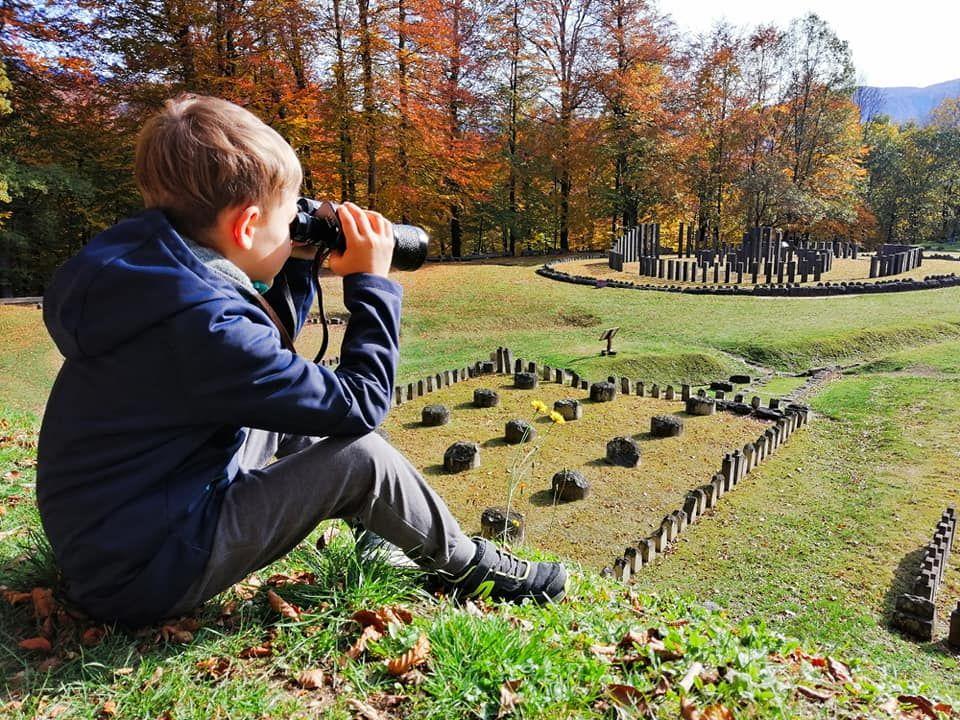
the UNESCO World Heritage site Ruins of Dacian Citadels
In Romania the emergency number is 112 and an operator will ask if you want to talk to the police, fire or medical services.
There are no particular health concerns you should be aware about. No special insects or food issues around here either. As vegetation is very diverse and rich, those with pollen allergies should be prepared.
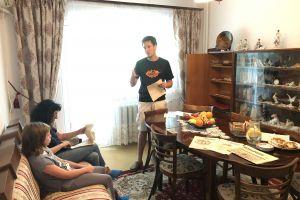
Museum of Communism: A Time-Capsule of Ordinary Lives
As regards medical services most hospitals are public and state-owned so they will take care of any walk-ins or emergencies - and settle insurance matters after. But you still need travel insurance, even if from a foreign issuer, whether you travel to Romania or anywhere else in the world.
Unfortunately healthcare in Romania is severely underdeveloped and understaffed so better lower your expectations of what a hospital should look like and how you should be treated. But medical staff is usually kind and will do their best to help you.
There are plenty of pharmacies in all urban areas and you can easily get the usual over-the-counter pills for colds, aches, indigestions or bruises.
Finally, we highly recommend you have a travel insurance. For citizens of the European Union countries, the European Health Insurance Card (EHIC) which offers health coverage EU-wide is a good option.
Is Romania a safe travel destination? Yes! There are NO terror attacks, violent protests or civil disturbances here. We have very strict firearm regulations - so no crazy people with guns either.
So is Romania safe for travellers? Yup, and even though you may have heard or read scary stories about traveling in the Balkans, just do what you normally do when in 'tourist mode:' don’t look for trouble, beware of pickpockets or suspicious people, ignore drunkards and people pushing their services to tourists (like taxi drivers in North Train Station), be careful at night and don't disrespect people, traditions or clearly stated rules.
This applies to female and solo travelers as well.

Cluj-Napoca Food Tour: Food Markets, Regional Dishes and Coffee Culture
Start from: Cluj-Napoca
We wrote an extensive article with Romania safety travel advice that will answer everything.
You may have heard stories about the rroma ethnic minority (improperly called gypsy) and how they're usually involved in small thefts, cons and begging. While their reputation might be bad, not all are like that. Most of the time you will see them as beggars, even using their children for money - but don't get fooled and give them anything as you're only perpetuating the cycle and not really helping them.
On our tours in Transylvania we take people to typical Rroma villages to find out about their culture and lifestyle in an authentic way firsthand.
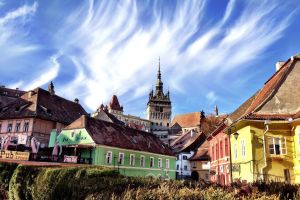
Tour of Transylvania's Countryside: Sighisoara Citadel & Fortified Villages
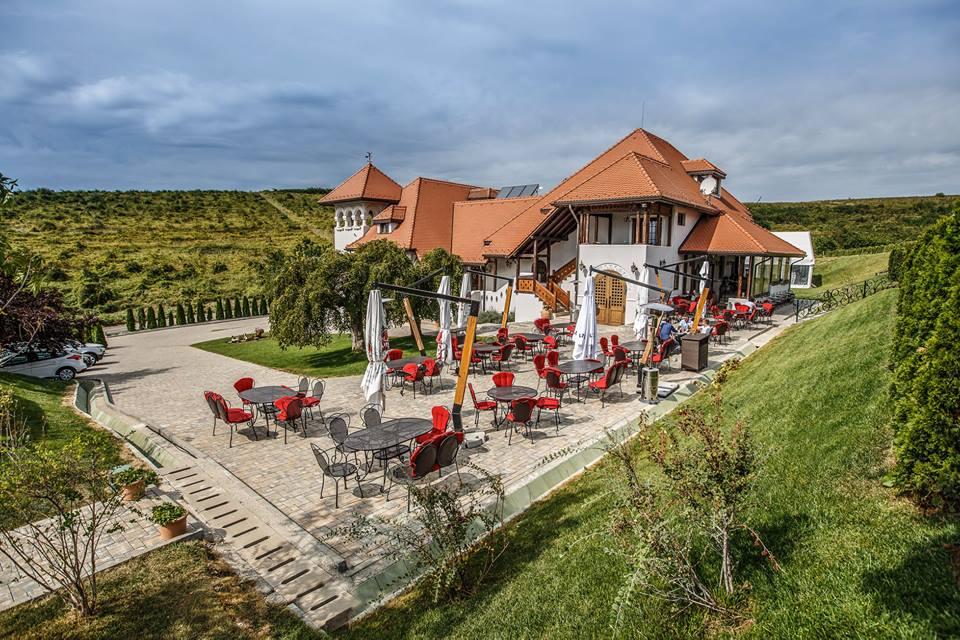
Romania offers lots of accommodation choices for all budgets, requirements or styles. All of them are listed on either Booking.com or AirBnB .
In the most visited cities you'll find a large selection of hostels, hotel rooms and boutique guesthouses. Lots of apart-hotels too. It's best to book them before you travel to Romania as walk-ins are rarely a good idea.
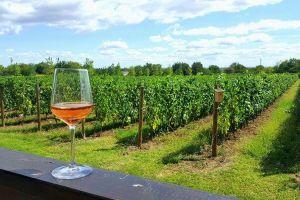
The Wine Tradition of Romania: Premium Wine Tasting in Dealu Mare
The other tourist cities are not that big so even if you're not staying in the "old town" or "union square" area (usually the city centre and most crowded areas), it will probably be a 5-15 min walk away. Besides walking, I personally like to keep my healthy routines while traveling and found some easy travel workouts to do.
When visiting the traditional tourist regions of Romania (Transylvania, Maramures, Bukovina, Danube Delta) accommodation usually means a family-owned guesthouse offering bed and breakfast in a small village. These are called pensiune or casa - no hotels or restaurants here. Most of them offer a private rooms with en-suite WC and half board we suggest you take it since there are likely few alternatives to eat out. For hiking trips villages at the base of the mountains usually have lots of guesthouses. But sometimes the hiking trails begin a little further away so you'll need a car or guide to get there. When going deeper in the mountains you'll have at most 1-2 choices to stay in, usually mountain cabins or chalets. Romania's hiking infrastructure is not well developed and hut-to-hut hiking is not possible for this reason.
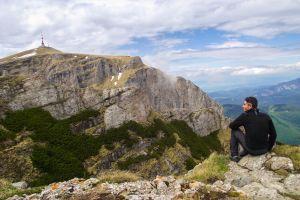
1 or 2 Day Hiking Trip in Bucegi Mountains: Sphinx, Babele, Omu Peak
Start from: Bucharest OR Brasov
Due to their very limited accommodation options and very high demand, we highly recommend you book your hiking trips in advance (min 2-3 weeks).
There are many good reasons to explore the Romanian countryside (the best place for culture trips), and here's another one: to stay in the many charming, authentic or luxury guesthouses. In recent years locals bought and restored old boyar (aristocrat) manors, traditional village houses (like King Charles did in Viscri), built modern eco-luxury villas, or converted large old farmhouses into agro-tourism cottages straight out of a fairy tale. See some inspiration here and make your trip to Romania memorable!
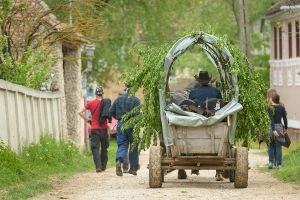
2-days of Agro-Tourism in Transylvania at a Local Farm
Start from: Cobor or Brasov
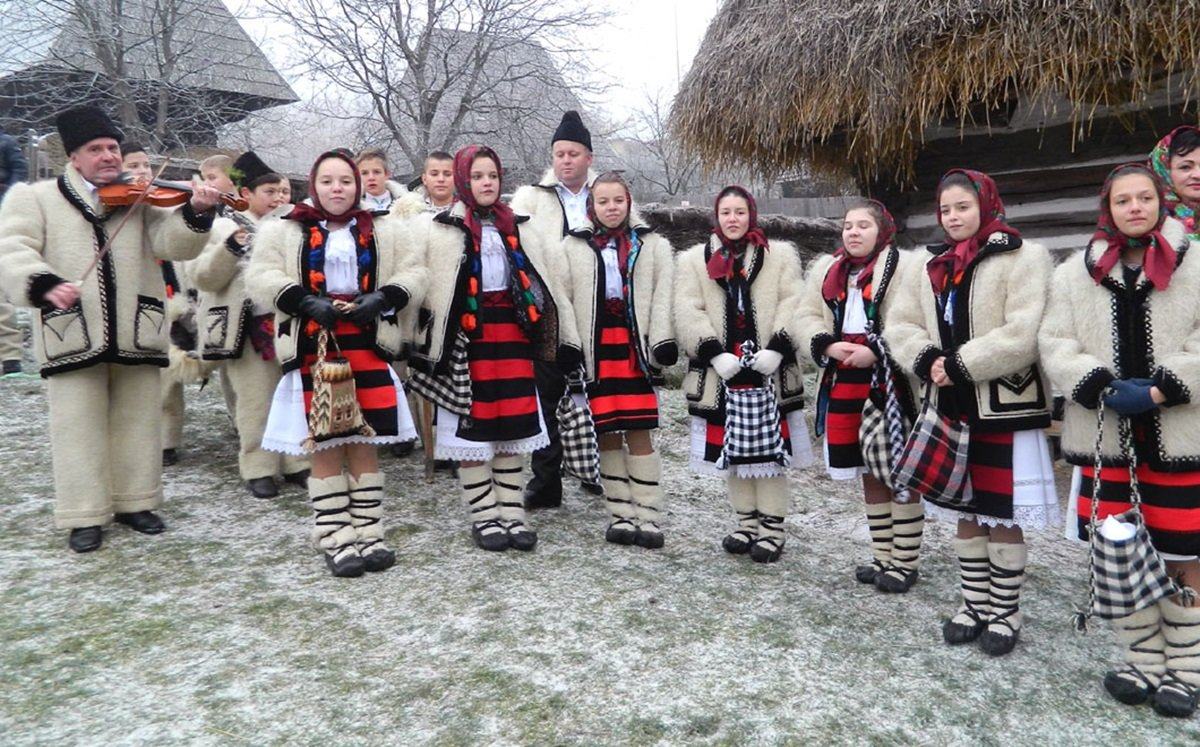
Traditional folk singers in Maramures
Romanian people and society is generally conservative and adheres to traditional values, especially older generations who grew up in the 45 years of Romanian communist regime .
Spending quality family time and having good relationships is important in our society. There are lots of destinations and facilities for this, which is why you should consider a holiday with the kids in Romania .
85% of the population is Christian Orthodox so major religious holidays like Easter or Romanian Christmas are celebrated through public holidays (when all tourist attractions are closed by the way).
Religion plays an important role in our society, especially in rural areas where people dress up and go to church every Sunday. There are lots of historic churches valuable for small communities where priests enjoy great influence. But beyond their religious function, Romanian churches are worth visiting because they are a unique place to discover authentic Romanian culture and folk traditions. Romanians, though being the majority of population in these parts, were historically persecuted (especially in Transylvania) for our faith, language and culture by foreign rulers. So churches were the only safe havens and community spaces Romanians had.
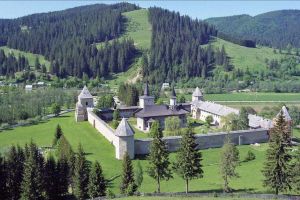
5-Day Complete Tour of Traditional Maramures & Bucovina
But Millennials and younger generations are very liberal, open-minded, friendly, tech-savvy and influenced by Western lifestyle and values. Most, if not all, young people speak English, are very eager to help foreign visitors have a good time in Romania and will quickly teach you Romanian words to get around.
- Pro tip: Romanians like to complain about politics, the economy and time in traffic, and love talking about sports, Romanian food and where to go when traveling to Romania – so pick any of these topics to start a conversation :)
Go on a brown bear watching tour in Transylvania
As a frequent traveler myself, I spend A LOT of time doing online research to see what are the most popular places to visit and interesting things to do in a new place. I compare tours, prices, check public transportation, read forums, travel blogs, Instagram - the usual!
But this becomes confusing and stressful when planning to visit Romania because of outdated, incomplete or vague info. There's no official travel portal or assistance from Romanian tourist authorities. Tour operators compete on prices on Viator and similar websites - not on value or authentic experiences.
That's why I started this website in 2017 and partnered with the best and friendliest people. We want you to have a great experience and a memorable holiday when you travel to Romania and here's our advice on how to do that:
- first, read about the major tourist cities , best places to visit and things to do in Romania and make a list with "must see" and "nice to see"
- second, look at the map of Romania to see where they're located and understand the logistics and limitations of getting around Romania and on Google Maps
- third, decide the basics like how many days you have for your holiday, what's your budget and what are the best places to start or end your trip
- fourth, beware that most tourists who travel to Romania underestimate how big the country is and want to do / visit too much in too little time! For example, if you want to visit a traditional region like Maramures or Bucovina where tourist sights are spread in the surrounding areas, you'll need 2-3 days on top of the time needed to get there by car; the same if you want to visit the Danube Delta which can be done only by boat!
- finally, think about what kind of holiday do you want in Romania? to visit as much as you can and go from one place to another? to go hiking and see wildlife? to experience traditional village life through slow travel (the best way)? Romania has much to offer but because it's quite big and traveling is slow - you can't have it all!
Once you're clear on the above, here's how we can help you:
- a a do-it-yourself holiday: book places to stay on your own, use public transportation to get around and book day trips from different cities (more time + energy + hassle for you, but cheaper and we can give you a disccount)
- we prepare a fully guided private trip for you with as much as you want, within your budget, using our best guides, expertise and local connections (a couple of emails/calls with us, no stress for you, and an amazing value-for-money holiday)
- if you need help deciding or making a plan - we know everything about tourism in Romania and are happy to help - just contact us
Important: because Romania is such an underrated and undiscovered tourist destination, tourist numbers are very low so 90% of tours in Romania are private except for city tours and a few day trips to the main attractions such as Bran Castle, Peles Castle, Sighisoara Citadel or Transfagarasan Road. All our hiking tours are private too because we don't combine people with different hiking experience and fitness level.
In 2024 we run 2 shared, small-group tours with fixed departures in the Summer so check them out:
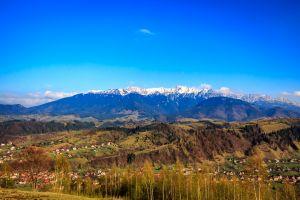
8-Day Exclusive Romanian Experience [Shared Group]
Romania is very popular thanks to Count Dracula touristy stories surrounding the famous Bran Castle known by its touristy name Dracula's Castle.
But there's so much more to do here other than visiting Bran Castle thanks to a fictional Hollywood character loosely connected to our history. Even though most tourists visit Romania looking for Dracula legends , once they're here, find out about the other main attractions and meet locals - surprise and wonder sets in!
The capital city Bucharest is a bustling city of contrasts. Though rough on the edges it is by far the most diverse and attractive for tourists. The main tourist cities of Brasov and Sibiu are famous for their Old Town with medieval architecture. But Cluj Napoca, Timisoara , Oradea or Iasi have their own stories to tell. But Romanian culture and spirit is best experienced when traveling in rural areas - perhaps on horse drawn carts . The ageing locals who preserved the traditional, authentic Romanian village life have done so by keeping a low profile, away from civilisation and busy "modern" life.
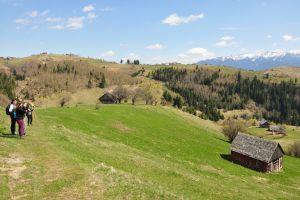
Day Trip to Traditional Mountain Villages: Magura & Pestera
The charm of Transylvania that made the UK's King Charles fall in love with Romania and buy village houses here can't be experienced on a touristy day trip from the capital to Brasov and Dracula Castle.
- `Local tip:`we created the first volunteer trip in Romania that combines tourist activities (hiking and wildlife watching) with hands-on environmental work at a typical rural farm, a tree nursery and for wildlife conservation. This will be a great experience for conscious travelers
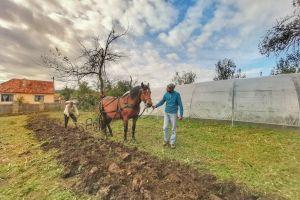
6-Day Volunteer Trip: Farm Life, Tree Nursery & Wildlife Conservation
You need to go deeper into rural areas with a tour guide who has the connections to show you around, meet locals, enjoy Romanian cuisine with home-grown food and experience their way of life firsthand. You need to slow down - which is rare in the fast-paced world of today - and a ride on horse-drawn carts will help with that :)
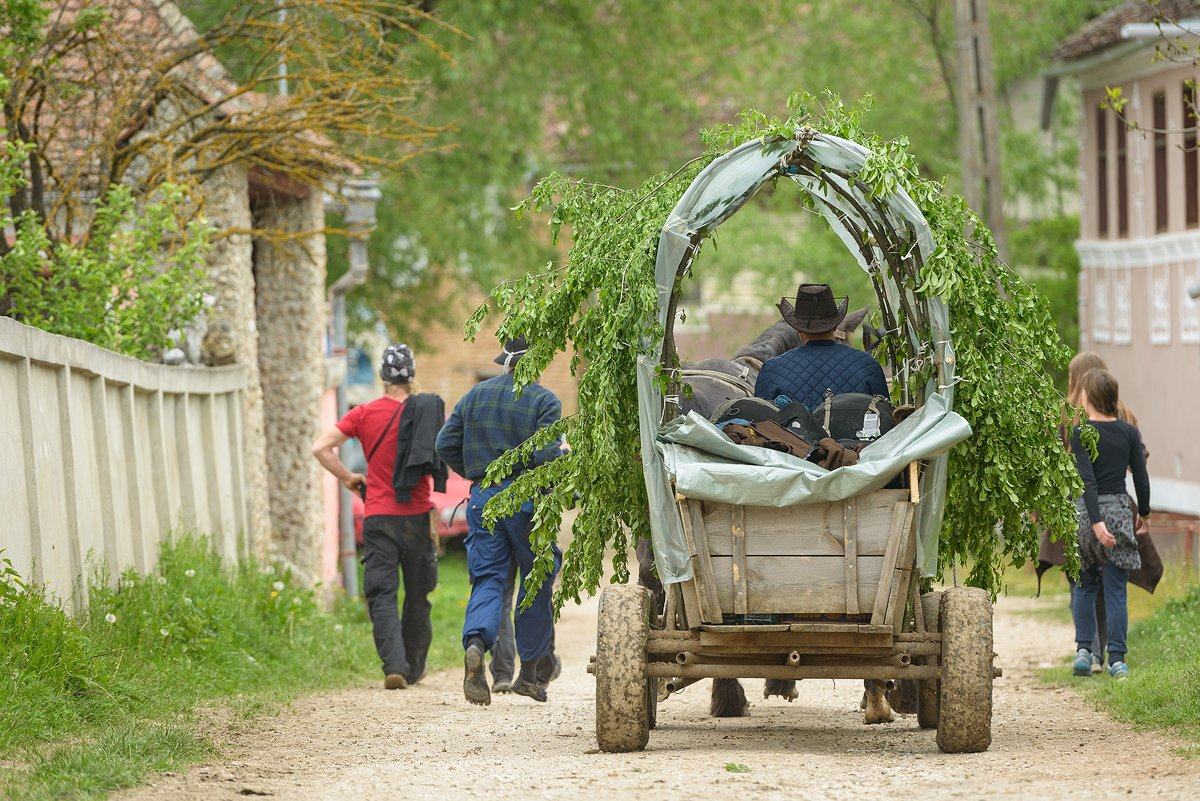
Transylvania Tours and Trips
Sadly, time is passing for our elders. Many Romanian villages have been abandoned and lost their ways since younger generations moved to larger cities. And if you add Romania's underdeveloped tourism and public transport infrastructure in the mix, then you'll see why our honest and friendly recommendation for the best way to experience Romania is to hire a local guide. Here are 3 reasons why:
- first, for a decent price you'll have less stress with planning and driving (not easy!), and you'll actually understand what you're visiting instead of just taking a picture! besides learning about our history and culture, our guides have connections to locals, lesser known places and sights you wouldn't be able to find on your own, especially in rural areas
- second, since 2017 we at Romanian Friend personally built a network of 50+ guides and partners all over the country; our guides are licensed and specialised in certain travel types (culture, hiking, wildlife, etc.) or regions, and deliver exceptional services so you get great value-for-money when visiting Romania; we've welcomed over 10,000 travelers on our tours and are proud of our reviews
- finally, we created tours that support responsible, inclusive and eco-friendly travel so if you travel to Romania and book with us, your visit will directly benefit local people and communities; this is our mission
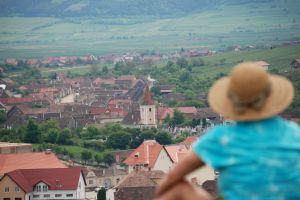
Day Trip: Village Life in Sibiu Countryside
Start from: Sibiu
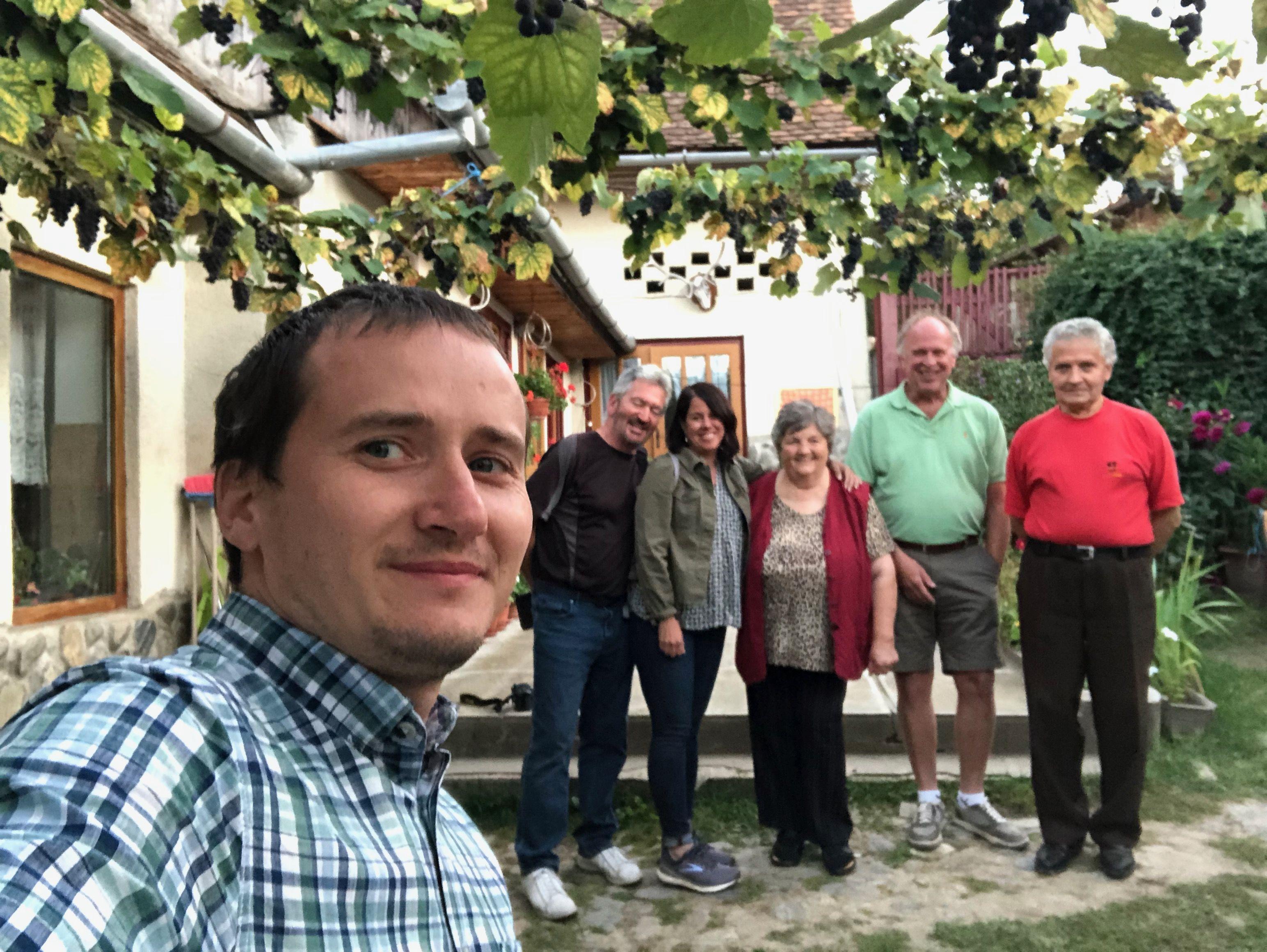
Our guides will organise home-hosted meals for you
Final tip: if you visit Romania, spend some time to get to know locals. Romanians are very hospitable, thoughtful and warm people. They enjoy having guests and will treat you like family, feed you till you drop (literally!), bring out their best wine or tuica and generally go out of their way to make sure you have a great time. In our guide to Romanian cuisine we explain how so much of our culture and social life is connected to food, hospitality and enjoying meals together.
But so much hospitality and friendliness towards strangers might seem too much at first, or even make you feel uncomfortable. But this is just how Romanians are and an integral part of our culture: family, friends and community play a big role in Romanian life - even if Bram Stoker never mentioned this in his Dracula novel! If you have the chance, go to any Romanian festival and you'll see what I mean :)
Abandon any pre-conceptions about Romania and open your heart and mind while you're here, explore the country and meet locals. Let them show you what a beautiful country we have. Despite the uncertainties of travel, Romania will still surprise you, I'm sure of it. Why?
Because I've heard this so many times from our clients: Wow, I never thought Romania has so much to offer!
So that's it - I hope this will make it easy for you to travel to Romania and have a memorable holiday! I started Romanian Friend as a one-stop-shop to promote my country and its people, so you'll find everything you need on this website.
And if there's something missing, you have a question or need help with planning - just contact us - happy to help!
Your Romanian Friend (and founder)
Check our tours
- By category
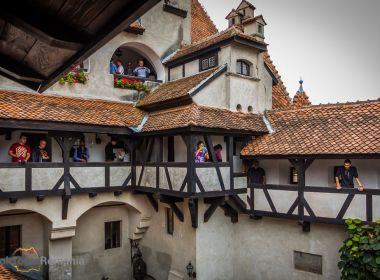
Local insights from Romania
4 times a year we prepare a newsletter with local stories, places and our special insights about Romanian culture and local life that will inspire you to visit our country and have an authentic local experience. Would you like to get it?
#romanianfriend

Cookies on GOV.UK
We use some essential cookies to make this website work.
We’d like to set additional cookies to understand how you use GOV.UK, remember your settings and improve government services.
We also use cookies set by other sites to help us deliver content from their services.
You have accepted additional cookies. You can change your cookie settings at any time.
You have rejected additional cookies. You can change your cookie settings at any time.
Bring photo ID to vote Check what photo ID you'll need to vote in person in the General Election on 4 July.
- Passports, travel and living abroad
- Travel abroad
- Foreign travel advice
Warnings and insurance
The Foreign, Commonwealth & Development Office ( FCDO ) provides advice about risks of travel to help British nationals make informed decisions. Find out more about FCDO travel advice .
Before you travel
No travel can be guaranteed safe. Read all the advice in this guide as well as support for British nationals abroad which includes:
- advice on preparing for travel abroad and reducing risks
- information for women, LGBT+ and disabled travellers
Follow and contact FCDO travel on Twitter , Facebook and Instagram . You can also sign up to get email notifications when this advice is updated.
Travel insurance
If you choose to travel, research your destinations and get appropriate travel insurance . Insurance should cover your itinerary, planned activities and expenses in an emergency.
Related content
Invasion of ukraine.
- UK visa support for Ukrainian nationals
- Move to the UK if you're coming from Ukraine
- Homes for Ukraine: record your interest
- Find out about the UK’s response
Is this page useful?
- Yes this page is useful
- No this page is not useful
Help us improve GOV.UK
Don’t include personal or financial information like your National Insurance number or credit card details.
To help us improve GOV.UK, we’d like to know more about your visit today. Please fill in this survey (opens in a new tab) .

Romania Travel Tips
Last Updated: November 2, 2023
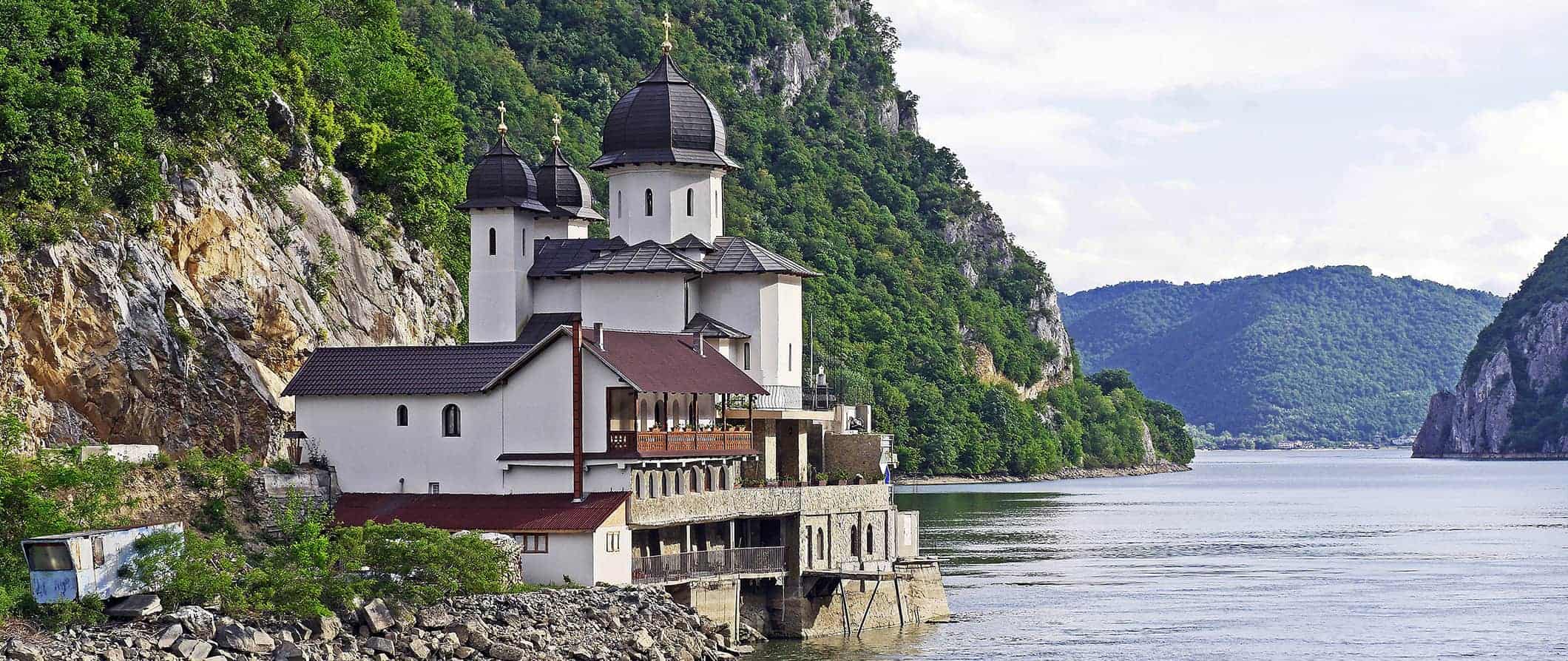
I had no idea what to expect when I first visited Romania. Beyond the stereotypical vampire myths and legends of Transylvania, I knew shockingly little about the country.
What I found on arrival was a budget-friendly destination brimming with hearty food, amazing natural landscapes, and a fraction of the tourists found elsewhere in Europe .
The country has a long (and turbulent) history stretching back thousands of years. It was annexed by numerous powers over the centuries, including the Romans, the Byzantines, the Holy Roman Empire, Hungary, and the Soviets (who left a particularly dark stain on the country’s history).
While Romania used to be far off the beaten path, in recent years, the country’s tourism numbers have been increasing. That said, it’s still relatively undiscovered compared to countries in Western and Central Europe and its charming historic cities with cobblestone streets and medieval architecture is both affordable and rarely crowded.
I love Romania to bits and I strongly, strongly encourage you to take the country slowly and spend extra time here. It’s a massive country perfect for road-tripping, hiking, and history buffs.
This travel guide to Romania can help you plan your trip, save money, and make the most of your visit.
Table of Contents
- Things to See and Do
- Typical Costs
- Suggested Budget
- Money-Saving Tips
- Where to Stay
- How to Get Around
- How to Stay Safe
- Best Places to Book Your Trip
- Related Blogs on Romania
Click Here for City Guides
Top 5 things to see and do in romania.
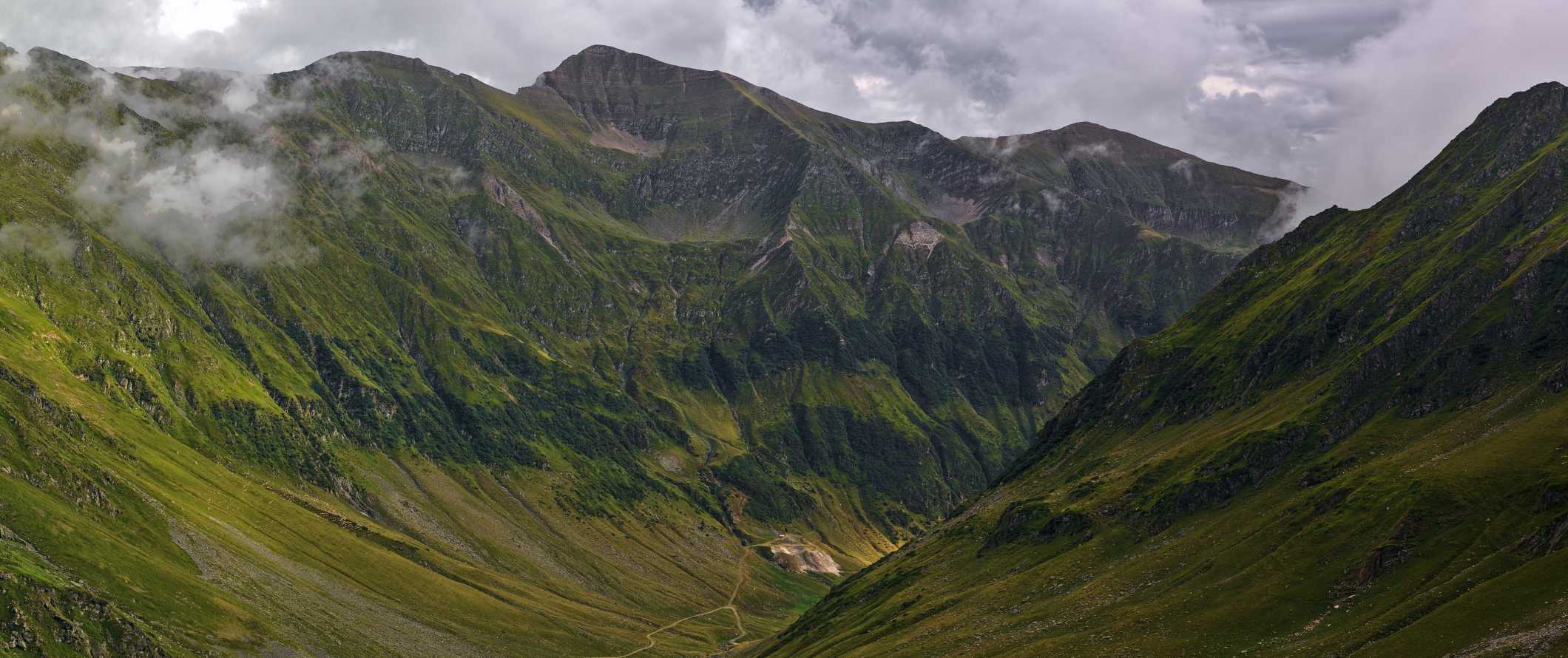
1. Explore Brasov
Located in the historical region of Transylvania and surrounded by the Carpathian Mountains, Brasov is one of the best-preserved cities in Romania. Due to its location in the center of the country, the city has long been a hub for commercial and cultural activities (it was even the birthplace of Romania’s national anthem). Today, the city is best known to travelers as the launching pad for trips to “Dracula’s castle” (which isn’t actually his castle but is still a fun one to visit). There’s a bit of everything here, including great hiking nearby, a beautiful historic center, and charming medieval streets. The city also offers a wide variety of food, from local Romanian fare to tasty international dishes. Stay awhile and really soak in this cultural capital.
2. Wander Bucharest
Bucharest boasts a healthy mix of Neoclassical and Beaux-Arts buildings and communist-style concrete blocks. By European standards, it’s a relatively young city, and in recent years has become a tech hub for local and European startups as well as digital nomads. There are plenty of museums, cemeteries, historical sites, shopping centers, and architectural sights to check out here. Some of the main sights include the gigantic Palace of Parliament, the Romanian Patriarchal Cathedral, the ethnographic Village Museum, Revolution Square, and the Ceausescu Mansion.
3. Trek the Fagaras Mountains
The Fagaras Mountains are the highest mountains in the Southern Carpathians and one of the most popular places in the country to go hiking. You can go on an awesome multi-day trekking experience that takes you along the main ridge of the Fagaras. The route is one of the longest and most continuous high-mountain traverses in Europe. Hikers can trek over Moldoveanu, Negoiu, and Vista Mare — three of Romania’s highest peaks that all tower over 2,500 meters (approximately 8,300 feet).
4. Visit Sibiu
Visiting Sibiu is like stepping back into the Middle Ages. Located in the historical region of Transylvania, the city was the capital of the region at various points throughout history. Cobblestone streets, ancient town squares, castle walls, and historic buildings — this city has everything you want in an old European city but without the crowds found elsewhere. It has a wonderful medieval charm, beautiful views of the surrounding landscapes, excellent food, and lots of green space. Don’t miss the Brukenthal Museum, the Citadel, and the unique Baroque eyebrow dormers that earned the city the nickname “The City with Eyes.”
5. See the painted monasteries in Bucovina
These Romanian Orthodox monasteries in the northeastern edge of the country are striking in that they have their exterior walls painted with elaborate 15th- and 16th-century frescoes featuring saints, prophets, Jesus, and other religious scenes. The walls are a masterpiece of Byzantine art and a pilgrimage destination for Romanian Orthodox believers. Eight of the monasteries have been designated a collective UNESCO World Heritage Site too.
Other Things to See and Do in Romania
1. see the alexandru borza botanic gardens.
Located in Cluj-Napoca , this massive botanical garden features rolling green hills, an observation tower, a rose garden, and even a Japanese garden. Founded in 1872, the garden is home to over 10,000 plants and spans 35 acres. There are greenhouses, ponds, and a wide variety of regional gardens with plants from all around the world. Admission is 15 RON per person (RON when the greenhouses are closed).
2. Get a cultural immersion in Maramures
This medieval region of Romania is one of my favorites. The traditional culture here is thriving and there is an interesting blend of local music, hand-made wooden structures, and colorful textiles to experience. Each village has a large wooden church and intricate wooden gates that are hand-carved (woodworking is a tradition here that goes back centuries). There are unique cemeteries as well, stemming from their belief that the afterlife is a beginning, not an end. For example, instead of solemn words on stone tombstones, there are blue wooden crosses with funny verses about the deceased. Don’t miss the Memorial Museum to the Victims of Communism & to the Resistance and the Elie Wiesel Memorial House (Wiesel was a famous Romanian-American who wrote the book Night about his experiences during the Holocaust.).
3. Hike at Mount Tampa
Towering above Brasov, this mountain is great for a quick hike if you’re looking to get a view overlooking the city. The mountain also has a large sign similar to the white “Hollywood” sign in Los Angeles . While the hike is pretty easy and takes less than an hour (the mountain is just 1,000 meters/3,280 feet high), there is also a cable car you can ride to the summit for 18 RON (round trip).
4. Visit the Romanian Patriarchal Cathedral
This cathedral in Bucharest was completed in 1659 and still has all of its original interior paintings and icons, in addition to some beautiful frescoes (most of the frescoes are reconstructions). The exterior façade was designed in the Brancovenesc style and the interior is lavishly ornate, spacious, and colorful. The acapella choir is particularly impressive to listen to. Admission is free but dress conservatively as this is a place of ongoing worship.
5. See the wildlife in Northern Dobruja
Tucked away in the southeastern corner of the county, this region is home to over 400 species of birds as well as lots of wildlife. It’s a hilly expanse with over a dozen lakes, and more to be found just over the border in Bulgaria . It’s one of the best regions to explore by car as you can hop from town to town. Be sure to spend some time in the coastal city of Constanta, the oldest continuously inhabited city in Romania (it was founded in 600 BCE).
6. Visit the Danube Delta
Flowing over 3,000 kilometers (1,864 miles) from its source in Germany , this is Europe’s second-largest and best-preserved delta (the Volga is the largest). The Danube stretches through 10 countries — more than any other river in the world — before draining into the Black Sea via Romania (and Ukraine ). The entire region is a UNESCO World Heritage site, making it a great nature preserve to explore if you’re looking to get away from the crowds. You can hike around the coastline or take a boat tour along the water for a better view. While the hiking is free, expect to pay around 210-300 RON for a full-day boat tour that includes lunch. A half-day tour without lunch is about 110-150 RON.
7. Celebrate Hora de la Prislop
Held every August, this festival is a celebration that brings together Transylvania, Moldova , and Maramures. Known more commonly as the Dance at Prislop, there is lots of traditional dancing and singing, beautiful costumes, parading, and awesome feasting. Dating back to the 1730s, the festival is a celebration of local and traditional culture and one not to be missed if you’re in the area. The festival is held in the remote Prislop Pass in the north of the country, where up to 50,000 people gather each year.
8. Hunt for Dracula in Sighisoara
Founded during the 12th century, this town is one of the most beautiful and best-preserved medieval towns in Europe. One of the eight UNESCO World Heritage Sites in the country, there are many towers, ornate churches, and burgher houses (traditional houses from the Middle Ages and Renaissance) to see throughout the colorful cobbled streets. This is also the birthplace of Vlad Tepes, more commonly known as Vlad the Impaler (aka Dracula). Be sure to climb the clock tower for sweeping views of the city. Other highlights include the History Museum, the guild towers (part of the city’s historic defenses), and the Scholar’s Stairway (a 17th-century staircase that was used by schoolchildren).
9. Visit Peles Castle
Constructed for King Carol I in the 1870s as a getaway spot, this castle (which looks more like an elaborate palace or manor house) is lavishly decorated and serves as a great reminder of the luxurious lives these rulers enjoyed. It was also the first castle in Europe to have electricity. After touring the elaborate grounds and gardens you can head inside to look at the art and antique collection, which includes over 4,000 arms and armor. A visit to the ground floor of the castle costs 50 RON, a tour including the first floor costs 100 RON, and a tour of the ground, first, and the second floor costs 150 RON. The temporary exhibitions are free. Guided day trips from Bucharest cost around 100 RON and include Bran Castle.
10. Tour a salt mine
Salina Turda is a salt mine in Turda that has been converted into a subterranean museum. The mine dates back to antiquity and was used throughout the Middle Ages. Learn how the workers got the salt to the surface and how laborious the process was. There’s a small underground lake at the bottom where you can rent a boat and paddle around and there are also games like bowling and mini-golf and even a Ferris wheel! It’s a good place to visit with kids. There is also a spa if you want to treat yourself to some natural remedies. Admission is 50 RON on weekdays and 60 RON on weekends. Skip-the-line tickets (including a guide and ride from Bucharest) cost 500 RON.
11. Explore Cluj-Napoca
Cluj-Napoca is pleasant university town located in Romania’s northwest and a big stopping point for people coming east from Hungary (it’s a hub for cheap flights too). The city dates back centuries, and there are a lot of historical churches, museums, and ruins (especially on Cetatuia hill) to visit. Because of the university here, there are a lot of affordable restaurants and a very happening nightlife in the city. I really liked the days I spent here. While not as historic and medieval as many of Romania’s other cities, if you’re looking for a city with a cool atmosphere in Romania, this place is it.
12. Explore Hoia Forest
This infamous forest has been the site of numerous ghost and UFO sightings over the centuries (as well as other paranormal activities). In fact, it’s often considered the creepiest forest in the world. Here, trees are warped and bent in unsettling ways that science hasn’t been able to explain. Take a stroll through the woods during the day for free (lots of locals walk and jog here) or do a guided night tour to learn about the unsettling paranormal events that have occurred here! Night tours cost 250-475 RON per person.
13. Unwind at Balea Lake
Located 90 minutes from Sibiu, Balea Lake makes for a worthwhile day trip from the city. Part of the Fagaras Mountains (often called the “Transylvanian Alps”), many people come here to hike or to ski during the winter (there is even an ice hotel built here in the winter). There are marked trails if you want to hike, offering both five-hour and nine-hour routes to some of the nearby summits. Located about an hour from the city, you can take a bus here for around 90 RON.
For more information on specific cities in Romania, check out these guides:
- Brasov Travel Guide
- Cluj-Napoca Travel Guide
- Sibiu Travel Guide
Romania Travel Costs
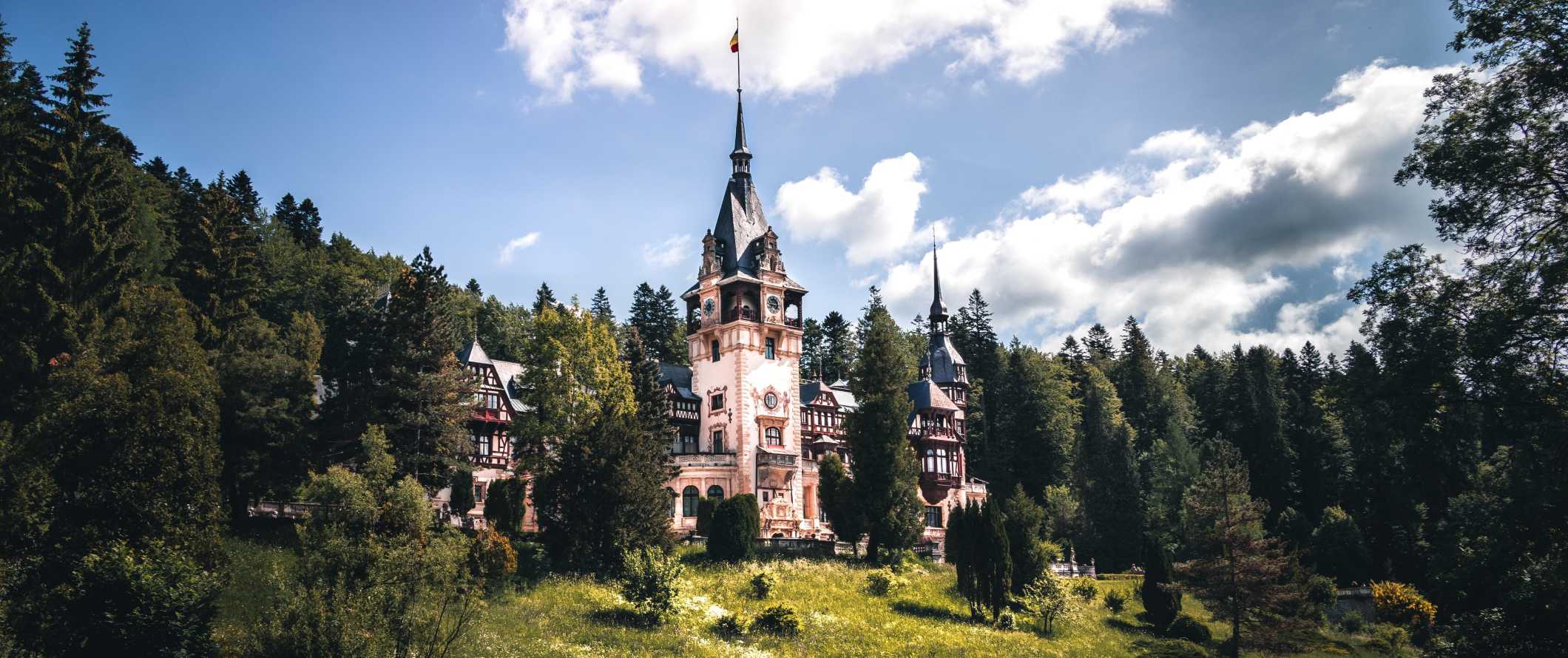
Accommodation – A bed in a 4-8-bed hostel dorm costs about 50-70 RON per night. A private room in a hostel costs at least 130 RON per night. Free Wi-Fi is standard and many hostels also have self-catering facilities if you want to cook your own food. Most hostels in the country don’t include free breakfast.
A budget hotel costs around 150-175 RON per night. You can find rooms cheaper, however, you’ll have to share a bathroom with other guests. Free Wi-Fi is common and many hotels also include a simple free breakfast as well.
Airbnb is available throughout the country with private rooms starting around 90 RON per night, while entire homes/apartments cost around 130-175 RON.
For those traveling with a tent, camping is possible around the country, though stick to dedicated campgrounds. Wild camping is legal, but theft is a bit common so it’s much safer to camp in designated areas. It costs 25-40 RON per night for a basic tent plot.
Food – Romanian cuisine is hearty, influenced by nearby Hungary and other Eastern European neighbors. Stews and sausages are common staples, with garlic sausage being especially popular. Sour soup, lamb, meatballs, and meat pies are other popular traditional meals. Wine is the drink of choice here as Romania is one of the largest wine producers in the world.
Most cheap (yet filling) restaurant meals (such as schnitzel with mashed potatoes and salad) cost around 25-45 RON for dinner, and 10-20 RON for breakfast. Soup is a good option for saving money as it costs around 17-25 RON and is pretty hearty (it also typically comes with a side of bread).
At a mid-range restaurant, a three-course meal costs around 80 RON. A burger or pasta dish is 35-40 RON while seafood or steak dishes typically cost 75-130 RON. A six-course tasting menu starts at 110 RON.
Fast food is around 6-9 RON for a burger or hot dog, while a combo meal (think McDonald’s) is around 30-40 RON. Takeaway sandwiches are around 20 RON.
A domestic beer out at a restaurant or bar costs around 8-10 RON, a glass of local wine is 7-18 RON while a bottle is 60-100 RON, and cocktails start at 20-35 RON. A cappuccino/latte is around 10-12 RON, a tea is 10 RON, and a bottle of water is 5-8 RON.
In tourist destinations like Brasov or Sighisoara, expect prices to be a little higher (but not too much).
If you buy your own groceries and cook your meals, expect to pay about 140-190 RON per week for groceries that include pasta, vegetables, chicken, and other basic staples. Save money by shopping at local markets or small roadside stands, which usually have the cheapest and freshest products. There are also several discount supermarkets in Romania, like Profi, Lidl, and Penny Market.
Backpacking Romania Suggested Budgets
On a backpacker budget of 140 RON per day, you can stay in a hostel, cook all of your meals, use local transportation to get around, take slow trains between cities, and do mostly free activities like hiking and free walking tours.
On a mid-range budget of about 265 RON per day, you can stay in an Airbnb, eat out for most meals, enjoy a few drinks out at the bar, take the occasional taxi, take buses or rideshares between cities, and do more paid activities such as museum and castle visits.
On a “luxury” budget of 440 RON or more per day, you can stay in a hotel, eat out for all your meals, drink more, rent a car to get around, and do whatever tours and activities you want. This is just the ground floor for luxury though. The sky is the limit!
You can use the chart below to get some idea of how much you need to budget daily, depending on your travel style. Keep in mind these are daily averages — some days you’ll spend more, some days you’ll spend less (you might spend less every day). We just want to give you a general idea of how to make your budget. Prices are in RON.
Romania Travel Guide: Money-Saving Tips
Romania is already a very affordable country to visit. You’ll be hard pressed to spend a lot of money here. You really have to go out of your way to do so. But, if you want some ways to lower your costs, here are ways to save money in the country:
- Stay with a local – Nothing’s cheaper than sleeping for free. Couchsurfing connects you with locals who give you not only a free place to stay but who can introduce you to all the great places to see and share their insider tips and advice. It’s a great community to be a part of.
- Eat lunch out – Although the food in Romania is inexpensive in general, you can save more money by cooking your own dinners and eating your lunches out. A lunch menu in Romania typically consists of three courses (soup, main, dessert), and can cost as little as 30 RON.
- Rideshare – If you’re flexible in your schedule, use the ridesharing service BlaBlaCar to catch rides with locals between cities (or countries). Drivers are verified and it’s perfectly safe (though sometimes rides don’t show up, which is why you need to be flexible). While buses might be cheaper, this is more fun and usually faster.
- Shop at discount grocers – If you’re going to cook or are just grabbing a snack, save money by shopping at discount supermarkets like Profi, Lidl, and Penny Market.
- Stay at Balkan Backpacker Hostels – There are hostels all around Romania that are a part of the Balkan Backpacker network. Book directly with these hostels and tell them you’re aware of the network to get 10% off your stay.
- Hitchhike – Hitchhiking in Romania is safe and quite common. It’s not the fastest way to get around but it works if you’re on a budget. Just make sure you have a sign and that you trust your gut when accepting rides. It’s a great way to connect with locals while also saving money.
- Take the train – The trains in Romania are slow, but they are the cheapest way to get around. If you’re not in a hurry, take the train. There are some night trains around the country as well if you’re going long distances.
- Bring a water bottle – The tap water here is generally safe so bring a reusable water bottle to save money and reduce your reliance on single-use plastic. I suggest a LifeStraw since their bottles have a built-in filter to ensure your water is always clean and safe.

Where to Stay in Romania
Romania has tons of budget-friendly hostels. Here are of my favorite places to stay in Romania:
- JugendStube (Brasov)
- Sleep Inn Hostel (Bucharest)
- PanGeea (Sibiu)
- Burg Hostel (Sighisoara)
How to Get Around Romania
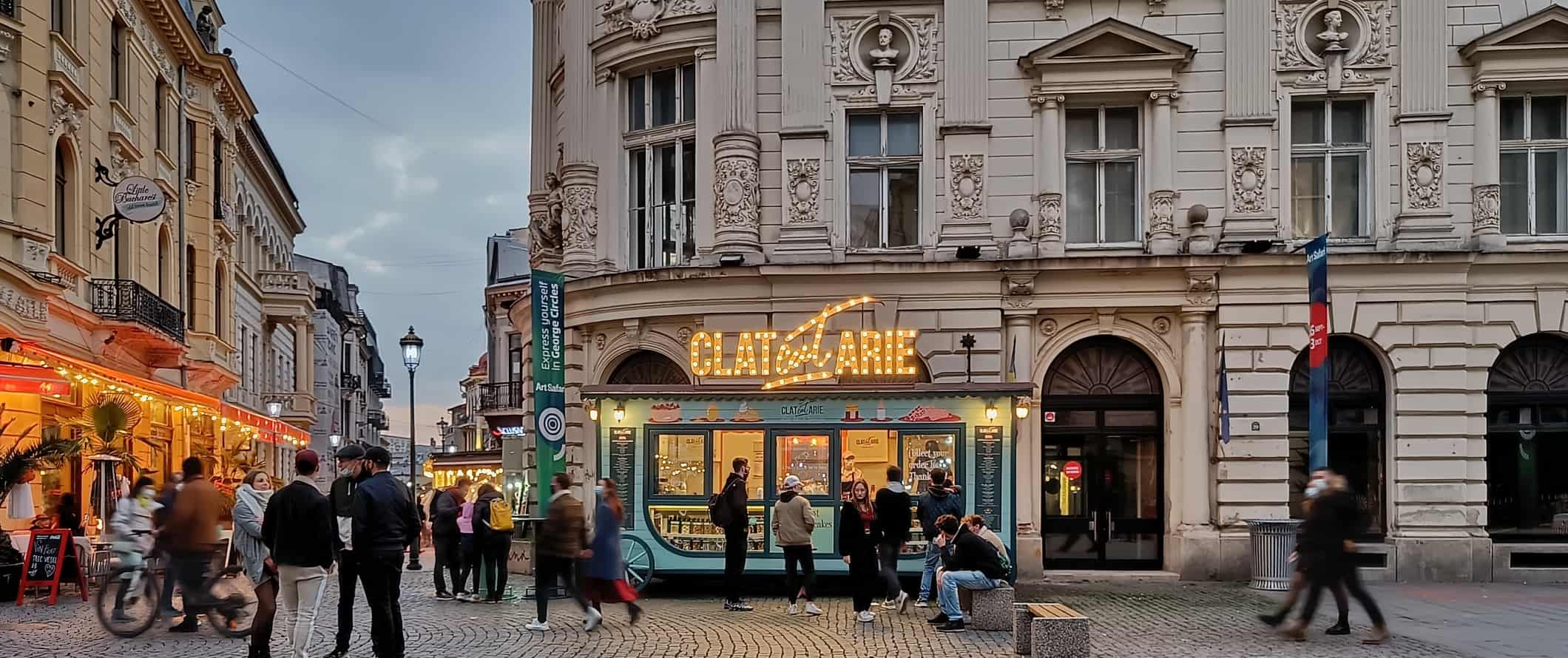
Public Transportation – Buses and trams in most towns cost as little as 2 RON for a single journey, though the vehicles are often crowded and in varying states of disrepair. In Bucharest, the metro is 3 RON, though a day-pass is only 8 RON making it a much better deal. Weekly metro passes are 30 RON, which is worthwhile if you’re going to be using public transportation often (week passes are also available for the buses and trams but prices vary depending on your route).
In Brasov and Cluj, for comparison, a single-ticket ride on the public bus is 2-2.50 RON while a day pass is 12-14 RON.
Flights – Flying around Romania is an option if you’re in a hurry. You can often find great deals if you plan ahead. From Bucharest, you can reach pretty much any airport in the country for under 400 RON.
Bucharest to Cluj or Timisoara, for example, can be done for under 170 RON one-way. Ryanair, Wizz, and Blue Air (the Romanian low-cost carrier) are the three airlines to check for the lowest prices.
Bus – Buses connect all the major cities in the country, though since Romania is a large country, the journeys can be quite long. For example, the journey from Bucharest to Cluj costs around 100 RON and takes 9 hours. The journey from Bucharest to Brasov takes around 4 hours and costs 50-65 RON.
Contrary to most countries, the trains here are a cheaper option in many cases. If you’re on a budget, be sure to compare bus and train prices.
Train – Trains in Romania are a slow (but reliable) way of getting around. There are 3 different kinds of trains: InterCity (IC), InterRegional (IR), and Regional (R). The InterRegional trains are the fastest and nicest and likely the ones you’ll be using to travel from city to city.
Standard seats (second class) are usually quite comfortable and adequate for even long journeys. Wi-Fi and catering are not available so bring your own entertainment and food if you have a long journey.
As for prices, the 9-hour journey from Bucharest to Timisoara is around 100 RON while the trip from Bucharest to Cluj-Napoca takes about the same amount of time and costs a little less at 90 RON.
Rideshare – Uber is available in Bucharest, Cluj-Napoca, Brasov, Timisoara, and Iasi. It’s the cheapest option if you need to get somewhere and don’t want to take public transit as the taxis in Romania charge an arm and a leg.
For longer distances, use BlaBlaCar. It’s a great (and safe) ridesharing service for intercity travels. Just download the app, make a profile, and search for rides.
Car – Car rentals are about 70 RON per day for a multi-day rental. Always be sure to lock your rental car when leaving, as rentals are targeted for theft more often than local vehicles. Drivers need to be at least 21.
For the best rental car prices, use Discover Cars .
Hitchhiking – Hitchhiking in Romania is very easy. Just make sure you make it clear to the driver that you are hitchhiking, as some drivers will demand payment if it’s not made clear. For more information about hitchhiking in Romania, use Hitchwiki .
When to Go to Romania
The best (and most popular) time to visit Romania is during the summer, from June to August. Temperatures are hot and rain is infrequent. Expect daily highs around 30°C (86°F) during this time. These are the busiest months of the year for tourism, though it’s only noticeable in destinations like Brasov or Sibiu where tourism is the main draw. But even then, the crowds are much smaller than in Western Europe.
The shoulder seasons (late April-May and September-October) are great times to visit as well. You’ll beat the crowds and have much milder temperatures, which are perfect for anyone looking to head into the hills for some hiking. There’s more rain in the spring, but there are also stunning autumn colors in the fall which makes for a beautiful backdrop to your trip (especially if you’re traveling through Transylvania).
Winter in Romania can be quite cold, with temperatures dropping below freezing. Snow is common though not abundant, which can affect conditions if you’re traveling by car. While cities like Sighisoara and Brasov look quite charming in the winter, Bucharest has a much grimmer atmosphere due to the influence of Soviet architecture and their reliance on gray, bland concrete. In short, I wouldn’t recommend a winter visit unless you have a specific desire to enjoy the cold and quiet cities.
How to Stay Safe in Romania
Romania is a very safe country and crime against tourists here is rare. It’s a safe destination for solo travelers.
That said, petty theft can still occur so always keep your valuables secure and out of sight. Theft is most common when riding crowded city buses and trams (mostly in Bucharest) so take extra precautions when riding.
Additionally, take some extra precautions when renting a car. While the roads are safe, rental cars are targeted for theft more than local cars, so take precautions and lock your vehicle when you’re not using it. When booking, make sure your insurance covers theft.
While scams are rare, if you’re worried about getting ripped off you can read about common travel scams to avoid here .
Solo female travelers should feel comfortable exploring on their own, though the standard precautions apply (don’t accept drinks from strangers, don’t walk alone late at night, etc.). As in any city, never leave your drink unattended when out at the bar and never walk home alone if intoxicated.
If you experience an emergency, dial 112 for assistance.
Always trust your gut instinct. Avoid isolated areas at night and be aware of your surroundings at all times. Make copies of your personal documents, including your passport and ID.
The most important piece of advice I can offer is to purchase good travel insurance. Travel insurance will protect you against illness, injury, theft, and cancellations. It’s comprehensive protection in case anything goes wrong. I never go on a trip without it as I’ve had to use it many times in the past. You can use the widget below to find the policy right for you:
Romania Travel Guide: The Best Booking Resources
These are my favorite companies to use when I travel. They consistently have the best deals, offer world-class customer service and great value, and overall, are better than their competitors. They are the companies I use the most and are always the starting point in my search for travel deals.
- Skyscanner – Skyscanner is my favorite flight search engine. They search small websites and budget airlines that larger search sites tend to miss. They are hands down the number one place to start.
- Hostelworld – This is the best hostel accommodation site out there with the largest inventory, best search interface, and widest availability.
- Booking.com – The best all around booking site that constantly provides the cheapest and lowest rates. They have the widest selection of budget accommodation. In all my tests, they’ve always had the cheapest rates out of all the booking websites.
- Get Your Guide – Get Your Guide is a huge online marketplace for tours and excursions. They have tons of tour options available in cities all around the world, including everything from cooking classes, walking tours, street art lessons, and more!
- SafetyWing – Safety Wing offers convenient and affordable plans tailored to digital nomads and long-term travelers. They have cheap monthly plans, great customer service, and an easy-to-use claims process that makes it perfect for those on the road.
- LifeStraw – My go-to company for reusable water bottles with built-in filters so you can ensure your drinking water is always clean and safe.
- Unbound Merino – They make lightweight, durable, easy-to-clean travel clothing.
- Top Travel Credit Cards – Points are the best way to cut down travel expenses. Here’s my favorite point earning credit cards so you can get free travel!
- BlaBlaCar – BlaBlaCar is a ridesharing website that lets you share rides with vetted local drivers by pitching in for gas. You simply request a seat, they approve, and off you go! It’s a cheaper and more interesting way to travel than by bus or train!
Romania Travel Guide: Related Articles
Want more info? Check out all the articles I’ve written on backpacking/traveling Romania and continue planning your trip:
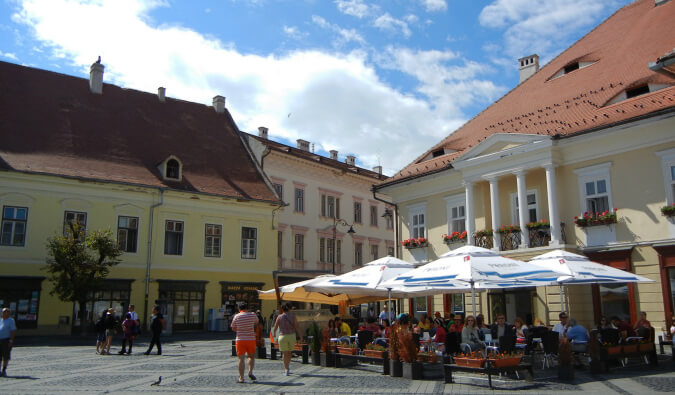
The Cost of Traveling Far Eastern Europe
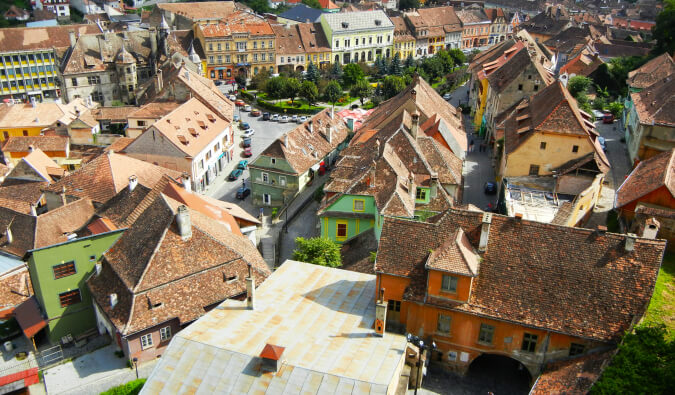
Finding More Than Dracula in Romania
Get your free travel starter kit.
Enter your email and get planning cheatsheets including a step by step checklist, packing list, tips cheat sheet, and more so you can plan like a pro!

- Where To Stay
- Transportation
- Booking Resources
- Related Blogs
Security Alert May 17, 2024
Worldwide caution, update may 10, 2024, information for u.s. citizens in the middle east.
- Travel Advisories |
- Contact Us |
- MyTravelGov |
Find U.S. Embassies & Consulates
Travel.state.gov, congressional liaison, special issuance agency, u.s. passports, international travel, intercountry adoption, international parental child abduction, records and authentications, popular links, travel advisories, mytravelgov, stay connected, legal resources, legal information, info for u.s. law enforcement, replace or certify documents.
Before You Go
Learn About Your Destination
While Abroad
Emergencies
Share this page:
Travel Advisory July 26, 2023
Romania - level 1: exercise normal precautions.
Reissued with obsolete COVID-19 page links removed .
Exercise normal precautions in Romania.
Read the country information page for additional information on travel to Romania.
If you decide to travel to Romania:
- Enroll in the Smart Traveler Enrollment Program ( STEP ) to receive Alerts and make it easier to locate you in an emergency.
- Follow the Department of State on Facebook and Twitter .
- Review the Country Security Report for Romania.
- Visit the CDC page for the latest Travel Health Information related to your travel.
- U.S. citizens who travel abroad should always have a contingency plan for emergency situations. Review the Traveler’s Checklist .
Embassy Messages
View Alerts and Messages Archive
Quick Facts
Three months beyond departure date.
1 page per stamp.
Not required for stays under 90 days.
Amounts over 10,000 Euros or equivalent must be declared.
Embassies and Consulates
U.S. Embassy Romania
4-6 Liviu Librescu Blvd. District 1 Bucharest, Romania Telephone: (+40) 21 200-3300, (+40) 21 270-6000 Fax: (+40) 21 200-3578 Email: [email protected]
Destination Description
Learn about the U.S. relationship to countries around the world.
Entry, Exit and Visa Requirements
- You must have a U.S. passport that is valid for at least three months beyond your departure date from Romania .
- With a valid U.S. passport book, U.S. citizens can stay up to 90 days in the Schengen area for tourism or business during any 180-day period. You must wait an additional 90 days before applying to re-enter the Schengen area.
- Departing Romania and then attempting to re-enter Romania does not “restart the clock.” U.S. citizens who depart Romania and return after spending less than 90 days in the Schengen will be admitted for the remainder of their 90-day stay. U.S. citizens attempting to re-enter Romania after having already spent 90 days in Romania the Schengen area may be denied re-entry to Romania.
- U.S. citizens who wish to stay longer than 90 days must obtain an extension (resident permit) from the Romanian Immigration Inspectorate .
- U.S. citizens traveling to Romania should also consult the CDC’s Romania website for immunization and other health information.
- U.S.-Romanian dual nationals should consult the Romanian Border Police website for information on exit requirements.
- If you have a temporary or permanent Romanian residence permit, be ready to present it upon request from local competent authorities.
Visit the Embassy of ROMANIA website for the most current visa information.
Traveling Through Europe : If you are planning to visit or travel through European countries, you should be familiar with the requirements of the Schengen Agreement.
- Your passport should be valid for at least three months beyond the period of stay if you plan on transiting a Schengen country review our U.S. Travelers in Europe page .
- You will need sufficient proof of funds and a return plane ticket .
- For additional information about visas for the Schengen area, see the Schengen Visa page.
- The U.S. Department of State is unaware of any HIV/AIDS entry restrictions for visitors to or foreign residents of Romania.
Find information on dual nationality , prevention of international child abduction and customs regulations on our websites.
Safety and Security
Terrorism: Terrorist groups and those inspired by such organizations are intent on attacking U.S. citizens abroad. Terrorists are increasingly using less sophisticated methods of attack – including knives, firearms, and vehicles – to more effectively target crowds. Frequently, their aim is unprotected or vulnerable targets, such as:
- High-profile public events (sporting contests, political rallies, demonstrations, holiday events, celebratory gatherings, etc.)
- Hotels, clubs, and restaurants frequented by tourists
- Places of worship
- Shopping malls and markets
- Public transportation systems (including subways, buses, trains, and scheduled commercial flights)
For more information, see our Terrorism page.
Crime: Reported types of crime include:
- Robbery, pick pocketing, internet scams, and credit card fraud are the most commonly reported crimes.
- Organized groups of criminals, sometimes including minors, operate in train stations, trains, subways, and busses.
- Money exchange schemes often involve individuals posing as plainclothes policemen who approach you, flash a badge, and ask for your passport and wallet. Insist on the presence of a uniformed police officer and request that any issues be resolved at the police station.
- If traveling on an overnight train, travel with a companion and in the highest class available.
- Do not leave your personal belongings unattended; stow them securely out of sight.
- Use ATMs located inside banks. You should check ATM machines for any evidence of tampering before use.
- Be extra cautious of your surroundings if using an internet café.
Be cautious about entering into contracts with Romanian businesses and/or organizations without legal assistance. The Romanian legal system is difficult for foreigners to navigate, making the assistance of a local attorney nearly essential.
International Financial Scams: See the Department of State and the FBI pages for information.
Internet romance and financial scams are prevalent in Romania. Scams are often initiated through Internet postings/profiles or by unsolicited emails and letters. Scammers almost always pose as U.S. citizens who have no one else to turn to for help. Common scams include:
- Romance/Online dating
- Money transfers
- Grandparent/Relative targeting
- Lotteries
- Bank overpayments
Victims of Crime: U.S. citizen victims of crime are encouraged to contact the U.S. Embassy for assistance. Report crimes to the local police at 112 and contact the embassy at (+40) 21 270-6000. Remember that local authorities are responsible for investigating and prosecuting crime.
See our webpage on help for U.S. victims of crime overseas .
We can:
- Help you find medical care
- Assist you in reporting a crime to the police
- Contact relatives or friends with your written consent
- Provide information regarding the victim’s role during the local investigation and following its conclusion
- Provide a list of local attorneys
- Provide our information on victim’s compensation programs in the U.S.
- Provide an emergency loan for repatriation to the United States and/or limited medical support in cases of destitution
- Help you find accommodation and arrange flights home
- Replace a stolen or lost passport
Domestic Violence: U.S. citizen victims of domestic violence are encouraged to contact the Embassy for assistance.
Tourism: The tourism industry is generally regulated and rules [with regards to best practices and safety inspections] are regularly enforced. Hazardous areas/activities are identified with appropriate signage and professional staff is typically on hand in support of organized activities. In the event of an injury, appropriate medical treatment is widely available throughout the country. Outside of a major metropolitan center, it may take more time for first responders and medical professionals to stabilize a patient and provide life-saving assistance. U.S. citizens are encouraged to purchase medical evacuation insurance .
- Romania is situated in a seismically active region and has a history of devastating earthquakes, with the greatest risk in Bucharest.
- Avoid contact with stray dogs. You may consult the CDC's Romania website for rabies immunization and other health information.
Local Laws & Special Circumstances
Criminal Penalties: You are subject to local laws. If you violate local laws, even unknowingly, you may be expelled, arrested, or imprisoned. Individuals establishing a business or practicing a profession that requires additional permits or licensing should seek information from the competent local authorities, prior to practicing or operating a business.
Be aware that recreational drug possession is not allowed in Romania, regardless of type or quantity. The penalty for possession of drugs for personal use can be imprisonment of up to three years.
Romania has strict regulations on importing/exporting firearms, other weapons, drugs, antiquities, local currency and gold or gold jewelry. Contact the Romanian Customs Office for specific information regarding customs requirements.
Furthermore, some laws are also prosecutable in the United States, regardless of local law. For examples, see our website on crimes against minors abroad and the Department of Justice website.
Arrest Notification: If you are arrested or detained, ask police or prison officials to notify the U.S. Embassy immediately. See our webpage for further information.
Counterfeit and Pirated Goods: Although counterfeit and pirated goods are prevalent in many countries, they may still be illegal according to local laws. You may also pay fines or have to give them up if you bring them back to the United States. See the U.S. Department of Justice website for more information.
Faith-Based Travelers: See the following webpages for details:
- Faith-Based Travel Information
- International Religious Freedom Report – see country reports
- Human Rights Report – see country reports
- Hajj Fact Sheet for Travelers
- Best Practices for Volunteering Abroad
LGBTQI+ Travelers: There are no legal restrictions on same-sex sexual relations or the organization of LGBTQI+ events in Romania. The annual gay pride parades in Bucharest have been the scene of violent protests in past years, though this has been less common recently.
See our LGBTQI+ Travel Information page and section 6 of our Human Rights report for further details.
Travelers with Disabilities: The law in Romania prohibits discrimination against persons with physical, sensory, intellectual or mental disabilities, and the law is enforced. Social acceptance of persons with disabilities in public is not as prevalent as in the United States. The most common types of accessibility may include accessible facilities, information, and communication/access to services/ease of movement or access. Expect accessibility to be limited in public transportation, lodging, communication/information, and general infrastructure. There is a significant difference between the large cities and the rest of the country.
Availability of rental, repair, replacement parts for aids/equipment/devices, or service providers, such as sign language interpreters or personal assistants is very limited. Contact the Embassy for information on providers.
Students: See our Students Abroad page and FBI travel tips .
Women Travelers: See our travel tips for Women Travelers .
Medical care in Romania is generally not up to Western standards, and basic medical supplies are limited, especially outside major cities. Some medical providers that meet Western quality standards are available in Bucharest and other cities but can be difficult to identify and locate.
Hospitals and doctors often require payment “up front” prior to service or admission. Credit card payment is not always available. Most hospitals and medical professionals require cash payment. Travelers seeking medical treatment should therefore choose their provider carefully.
Psychological and psychiatric services are limited outside of the larger cities, with hospital-based care only available through government institutions.
Most prescription drugs and over-the-counter medications are available in Romania but are often sold under different names. A list of approved medicines available in Romania can be found on the website of the Romanian National Agency for Medicines and Medical Devices .
Ambulance services are not present throughout the country and are unreliable in some areas except in or around major cities.
We do not pay medical bills. Be aware that U.S. Medicare/Medicaid does not apply overseas. Most hospitals and doctors overseas do not accept U.S. health insurance.
Medical Insurance: Make sure your health insurance plan provides coverage overseas. Most care providers overseas only accept cash payments. See our webpage for more information on insurance coverage. Visit the U.S. Centers for Disease Control and Prevention for more information on type of insurance you should consider before you travel overseas.
We strongly recommend supplemental insurance to cover medical evacuation.
Always carry your prescription medication in original packaging, along with your doctor’s prescription. Check with the Romanian National Agency for Medicines and Medical Devices to ensure the medication is legal in Romania.
Vaccinations: Be up-to-date on all vaccinations recommended by the U.S. Centers for Disease Control and Prevention.
Further health information:
- World Health Organization
- U.S. Centers for Disease Control and Prevention (CDC)
Air Quality: Air pollution is a significant problem in several major cities in Romania. Consider the impact seasonal smog and heavy particulate pollution may have on you and consult your doctor before traveling if necessary. Visit AirNow Department of State for information on air quality at U.S. Embassies and Consulates.
The U.S. Embassy maintains a list of doctors and hospitals . We do not endorse or recommend any specific medical provider or clinic.
Travel and Transportation
Road Conditions and Safety: Though Romanian traffic laws are very strict, road accidents are a real threat in Romania. According to the European Commission, Romania has the highest per-vehicle rate of road fatalities of any country in the EU.
While major streets in larger cities and major inter-city roads are generally in fair to good condition, many secondary roads are poor quality unpaved, poorly lit, narrow, and lacking marked lanes.
- Mountain roads are dangerous when wet or covered with snow or ice. Snow removal is intermittent.
- Mountainous areas can be subject to torrential rains and flash floods, especially in the spring and summer.
- Streets and sidewalks are often icy and hazardous during winter.
- It is common for pedestrians, animals, cyclists, and horse-drawn carts to share a road with motor vehicles, especially in rural areas.
- Parked vehicles often block sidewalks, forcing pedestrians to walk in the streets.
- Cross only at crosswalks and exercise vigilance as crosswalks are generally poorly marked.
- Although emergency services and road assistance services exist, it is advisable to carry spare tires, fuel and tools. The law requires motorists to carry a first aid kit, fire extinguisher and reflective triangles. This obligation has been eliminated for motorcycles and mopeds.
Traffic Laws: Romanian traffic laws are very strict.
- The traffic police can confiscate a driver's license or permit for 1-3 months and request payment of fines at the time of the infraction.
- Police are required to give all drivers involved in an accident a breathalyzer test on the scene.
- Refusal to take a breathalyzer test may result in criminal penalties regardless of whether or not alcohol was involved.
- Wearing a seat belt is mandatory.
- Children under 12 years of age may not be transported in the front seat.
- Use of mobile phones while driving is banned, with exception of hands free systems.
- The driver of a vehicle involved in an accident resulting in death or injury of a person must immediately call the emergency number 112, and must not move the vehicle, alter or leave the scene of the accident.
- In the case of an accident that only caused damage to the vehicles, drivers must move the vehicles to the side of the road, signaling their presence, and report the accident to the police or exchange insurance information and fill out an amicable accident report.
Use of U.S. state issued drivers’ licenses (DL) is not sufficient to operate motor vehicles in Romania. U.S. citizens arriving in Romania for stays up to 90 days may use their U.S. state drivers’ licenses only when accompanied by an International Driving Permit . Most rental car companies require international driving permits when renting a car to a U.S. driver’s license holder.
For current traffic regulations and speed limits in Romania please visit the website of the Romanian Ministry of Foreign Affairs .
If entering Romania by vehicle you must purchase a road tax badge, “rovinieta”, at the border crossing point. Proof of insurance and a car registration document are required. Drivers of vehicles registered abroad who are not in possession of a valid international insurance document must buy short-term insurance at the border.
Public Transportation: Public transportation in Romania is inexpensive and reliable. Inner city travel options include a variety of buses, trams, trolleybuses, and “maxitaxis” (private vans operating as shared taxis).
- You can purchase bus or tram tickets at street kiosks before boarding and validate the ticket once aboard.
- For “maxitaxis” you may buy a ticket directly from the driver.
For additional travel information
- Enroll in the Smart Traveler Enrollment Program (STEP) to receive security messages and make it easier to locate you in an emergency.
- Call us in Washington, D.C. at 1-888-407-4747 (toll-free in the United States and Canada) or 1-202-501-4444 (from all other countries) from 8:00 a.m. to 8:00 p.m., Eastern Standard Time, Monday through Friday (except U.S. federal holidays).
- See the State Department’s travel website for the Worldwide Caution and Travel Advisories .
- Follow us on Twitter and Facebook .
- See traveling safely abroad for useful travel tips.
Romania was cited in the State Department’s 2022 Annual Report to Congress on International Child Abduction for demonstrating a pattern of non-compliance with respect to international parental child abduction. Review information about International Parental Child Abduction in Romania . For additional IPCA-related information, please see the International Child Abduction Prevention and Return Act ( ICAPRA ) report.
Travel Advisory Levels
Assistance for u.s. citizens, romania map, learn about your destination, enroll in step.

Subscribe to get up-to-date safety and security information and help us reach you in an emergency abroad.
Recommended Web Browsers: Microsoft Edge or Google Chrome.
Check passport expiration dates carefully for all travelers! Children’s passports are issued for 5 years, adult passports for 10 years.
Afghanistan
Antigua and Barbuda
Bonaire, Sint Eustatius, and Saba
Bosnia and Herzegovina
British Virgin Islands
Burkina Faso
Burma (Myanmar)
Cayman Islands
Central African Republic
Cote d Ivoire
Curaçao
Czech Republic
Democratic Republic of the Congo
Dominican Republic
El Salvador
Equatorial Guinea
Eswatini (Swaziland)
Falkland Islands
France (includes Monaco)
French Guiana
French Polynesia
French West Indies
Guadeloupe, Martinique, Saint Martin, and Saint Barthélemy (French West Indies)
Guinea-Bissau
Isle of Man
Israel, The West Bank and Gaza
Liechtenstein
Marshall Islands
Netherlands
New Caledonia
New Zealand
North Korea (Democratic People's Republic of Korea)
Papua New Guinea
Philippines
Republic of North Macedonia
Republic of the Congo
Saint Kitts and Nevis
Saint Lucia
Saint Vincent and the Grenadines
Sao Tome and Principe
Saudi Arabia
Sierra Leone
Sint Maarten
Solomon Islands
South Africa
South Korea
South Sudan
Switzerland
The Bahamas
Timor-Leste
Trinidad and Tobago
Turkmenistan
Turks and Caicos Islands
United Arab Emirates
United Kingdom
Vatican City (Holy See)
External Link
You are about to leave travel.state.gov for an external website that is not maintained by the U.S. Department of State.
Links to external websites are provided as a convenience and should not be construed as an endorsement by the U.S. Department of State of the views or products contained therein. If you wish to remain on travel.state.gov, click the "cancel" message.
You are about to visit:

Search Smartraveller

Latest update
Exercise normal safety precautions in Romania.
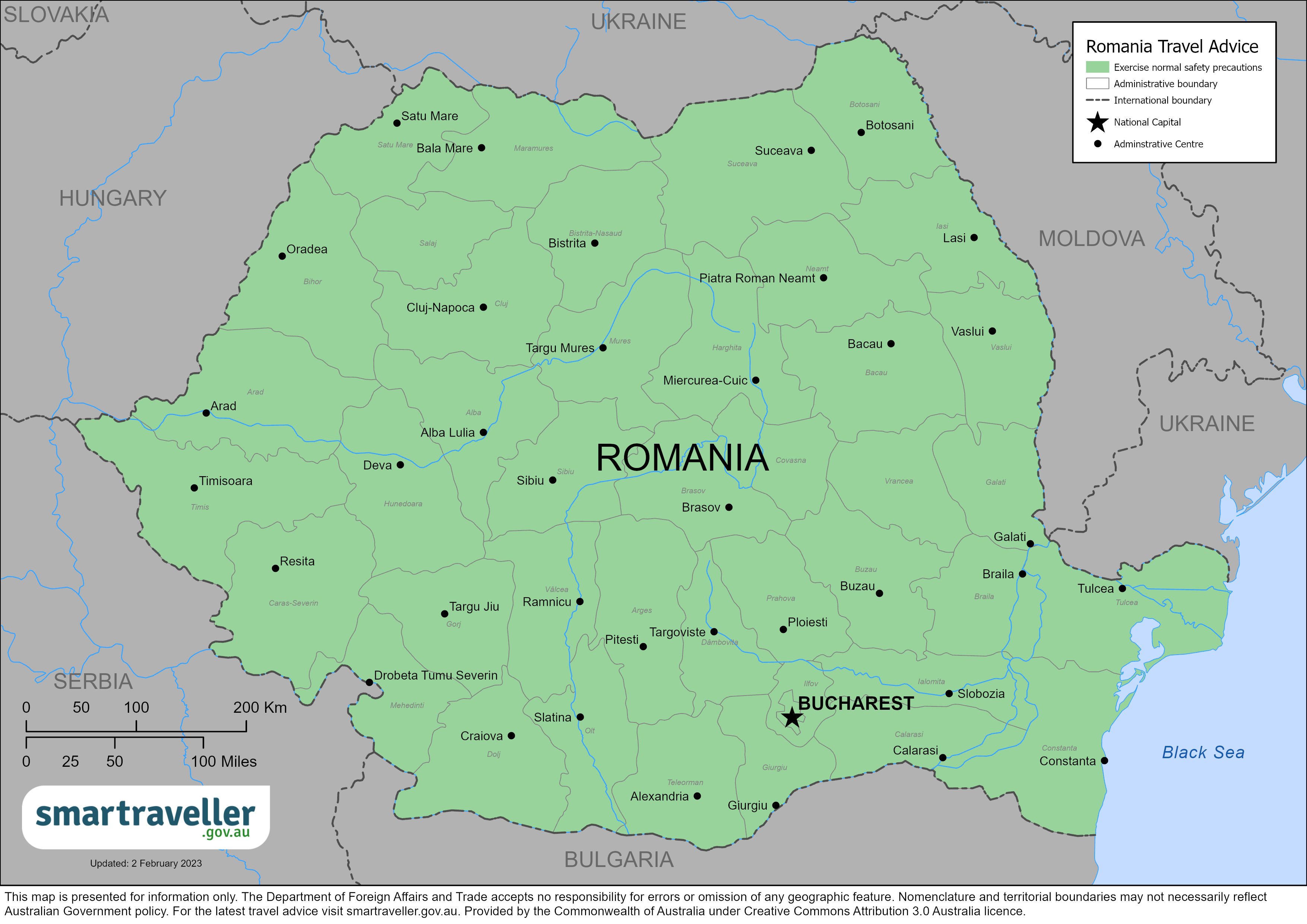
Romania (PDF 324.49 KB)
Europe (PDF 2.62 MB)
Local emergency contacts
Fire and rescue services, medical emergencies.
Call 112 or go to the hospital.
Call 112 or go to the local police station.
Advice levels
- The Russian invasion of Ukraine is ongoing. The security situation continues to be volatile. Do not travel from Romania to Ukraine.
- Pickpocketing and bag-snatching occur. Thefts from hotel rooms are common. Assault and theft happen on intercity trains. Keep your personal belongings close. Lock hotel and train compartment doors from the inside.
- Drink spiking is an issue, especially in Bucharest's Old Town. Don't accept food, drinks, gum or cigarettes from people you've just met.
- Thieves posing as police officers may ask to see your ID and wallet. Romanian police won't stop you at random to do this. If you suspect someone is posing as a police officer, ask to see their identification.
- Financial, dating and marriage scams occur. Only use ATMs in banks, shops and shopping centres, especially at night. Always keep your credit card in sight. Be wary of people you've met online.
Full travel advice: Safety
- Rabies occurs in wild and domestic animals. If an animal scratches or bites you, get medical treatment immediately.
- West Nile virus can occur. Make sure your accommodation is insect-proof. Use insect repellent.
- Measles has occurred in recent years. Ensure your vaccinations are up to date before you travel.
- Waterborne, foodborne and other infectious diseases are common. Drink boiled or bottled water. Avoid ice cubes and raw or undercooked food.
- Medical facilities and supplies are limited. You'll need to be evacuated if you become seriously ill or injured. Make sure your insurance covers this.
Full travel advice: Health
- Penalties for drug offences are severe. They can include jail sentences of up to 20 years.
- By law, you must always carry a photo ID. Keep your passport in a safe place. Carry a photocopy.
- Taking photos of airports, military sites, or other secure locations is illegal.
- It's illegal to engage in sex work or have sexual relations with a person under 18.
- Same-sex relationships are legal in Romania but not widely accepted.
Full travel advice: Local laws
- You don't need a visa if you're a tourist staying for less than 90 days or transiting through Romania. For other types of travel, you'll need a visa.
- Romania partially joined the Schengen area on 31 March. Border checks will cease between Romania and other Schengen countries for air or sea travel. Checks continue to be undertaken at land borders between Romania and other Schengen countries.
Entry and exit conditions can change at short notice. Contact an Embassy or Consulate of Romania for details about visas, customs and quarantine rules.
Full travel advice: Travel
Local contacts
- The Consular Services Charter tells you what the Australian Government can and can't do to help when you're overseas.
- The Australian Consulate in Bucharest provides limited consular and passport assistance.
- You can get full consular help from the Australian Embassy in Athens .
- Follow the embassy's social media accounts to stay up to date with local information.
Full travel advice: Local contacts
Full advice
Border with ukraine.
The Russian invasion of Ukraine is ongoing. Heavy fighting is occurring in parts of eastern and southern Ukraine. Missile strikes and attacks are ongoing in some locations across the country, including in major cities. There have also been attacks on Ukraine's Danube ports along the border with Romania. The security situation continues to be volatile. Do not travel from Romania to Ukraine. There's a risk to life.
If you have arrived in Romania from Ukraine and are in need of assistance, contact the Consular Emergency Centre on 1300 555 135 in Australia or +61 2 6261 3305 outside Australia.
Pickpocketing and bag-snatching can happen, usually:
- near hotels
- on public transport, especially to and from the airport
- in train stations
- in airport terminals
Organised groups of thieves target travellers. These groups may include children.
Thefts from hotel rooms are common.
Thefts and assaults take place on intercity trains.
Drink spiking is an issue, especially in Centrul Vechi (the old town in Bucharest).
To protect yourself from crime:
- keep your personal belongings close, particularly near hotels and on public transport
- avoid walking in quiet and poorly lit streets, especially at night
- lock hotel and train compartment doors from the inside
- don't leave luggage unattended in your train compartment
- don't accept food, drinks, gum or cigarettes from people you've just met
- don't leave food or drinks unattended
More information:
- Avoiding danger
- Partying safely
Sometimes thieves pretend to be police officers and ask for ID and wallets.
Romanian police won't stop you at random to ask for your ID or wallet. However, they may conduct checks if you don't comply with local laws.
If you suspect someone is posing as a police officer:
- ask to see their identification
- don't hand over your personal belongings
- offer to go to the nearest police station with them to check their identity
Financial scams , including credit card and ATM fraud, are common.
Internet fraud, including dating and marriage scams, also occur in Romania.
To reduce your risk of card theft and scams:
- only use ATMs in banks, shops and shopping centres, especially at night
- always keep your credit card in sight
- be alert to internet scams and other fraud
- be cautious if someone asks for your bank account details
- be wary of connections you make through internet dating schemes or chat rooms
Cyber security
You may be at risk of cyber-based threats during overseas travel to any country. Digital identity theft is a growing concern. Your devices and personal data can be compromised, especially if you're connecting to Wi-Fi, using or connecting to shared or public computers, or to Bluetooth.
Social media can also be risky in destinations where there are social or political tensions or laws that may seem unreasonable by Australian standards. Travellers have been arrested for things they have said on social media. Don't comment on local or political events on your social media.
More information:
- Cyber security when travelling overseas
Civil unrest and political tension
Protests occur in Bucharest and other major cities.
Public protests and events that draw large groups of people can turn violent.
They may also disrupt services, traffic and public transport.
To stay safe:
- avoid demonstrations
- follow the advice of local authorities
- monitor local media
- Demonstrations and civil unrest
While there have been no recent terrorist attacks in Romania, they can still happen.
In recent years, terrorists have attacked several European cities.
European security services have also disrupted several planned attacks.
To protect yourself:
- be alert to possible threats
- report anything suspicious to the police
- monitor the media for possible threats
- take official warnings seriously
If there's an attack, leave the area as soon as it's safe. Avoid the affected area in case of secondary attacks.
Terrorism is a threat worldwide.
Tours and adventure travel
Transport and tour operators don't always follow safety and maintenance standards. This includes operators of adventure activities.
If you plan to do an adventure activity :
- check if your travel insurance policy covers it
- ask about and insist on minimum safety requirements
- always use available safety gear, such as life jackets or seatbelts
If proper safety equipment isn't available, use another provider.
Climate and natural disasters
Serious earthquakes are rare, but Romania is in a seismically active region and earth tremors are common.
Wildfires are becoming more frequent in the summer months. Torrential rain and flash flooding can happen throughout the year.
If there's a natural disaster or severe weather :
- secure your passport in a safe, waterproof place
- keep in contact with your friends and family
- closely monitor the media and other local sources of information
Register with the Global Disaster Alert and Coordination System to receive alerts on major disasters.
Travel insurance
Get comprehensive travel insurance before you leave.
Your policy needs to cover all overseas medical costs, including medical evacuation. The Australian Government won't pay for these costs.
If you can't afford travel insurance, you can't afford to travel. This applies to everyone, no matter how healthy and fit you are.
If you're not insured, you may have to pay many thousands of dollars up-front for medical care.
- what activities and care your policy covers
- that your insurance covers you for the whole time you'll be away
Physical and mental health
Consider your physical and mental health before you travel, especially if you have an existing medical condition.
See your doctor or travel clinic to:
- have a basic health check-up
- ask if your travel plans may affect your health
- plan any vaccinations you need.
Do this at least 8 weeks before you leave.
If you have immediate concerns for your welfare, or the welfare of another Australian, call the 24-hour Consular Emergency Centre on +61 2 6261 3305 or contact your nearest Australian Embassy, High Commission or Consulate to discuss counselling hotlines and services available in your location.
- General health advice
- Healthy holiday tips (Healthdirect Australia)
Medications
Not all medication available over the counter or by prescription in Australia is available in other countries. Some may even be considered illegal or a controlled substance, even if prescribed by an Australian doctor.
If you plan to bring medication, check if it's legal in Romania. Take enough legal medication for your trip.
Carry a copy of your prescription or a letter from your doctor stating:
- what the medication is
- your required dosage
- that it's for personal use
Health risks
Rabies occurs in wild and domestic animals.
Ask your travel doctor about getting the rabies vaccine before you travel.
Get medical treatment immediately if an animal scratches or bites you.
- Infectious diseases
Tick-borne encephalitis
Tick-borne encephalitis is a risk, especially if you travel through forests and rural areas.
Ticks are active in spring from March to June and autumn from September to December.
West Nile virus
West Nile virus (WNV) is a disease spread by mosquitoes. There's no vaccine to prevent it.
The Romanian Health Ministry has confirmed cases of West Nile virus in:
To protect yourself from disease:
- make sure your accommodation is insect-proof
- use insect repellent
- wear long, loose, light-coloured clothing
An outbreak of measles has spread across Romania in recent years.
Make sure your vaccinations are up to date before you travel.
Other health risks
Waterborne, foodborne and other infectious diseases are common. These include:
- tuberculosis
Serious outbreaks sometimes occur.
To reduce your risk of illness:
- drink boiled or bottled water with intact seals
- avoid ice cubes
- avoid raw and undercooked food
Get medical advice if you have a fever or diarrhoea.
Medical care
Medical facilities.
Medical facilities in Romania are below Australian standards.
Some medical supplies are limited, particularly outside major cities.
Treatment can be expensive, and doctors often require payment up-front.
Ambulance services are unreliable in some areas outside larger cities. Psychological and psychiatric services are limited outside major cities.
Romania has 3 decompression chambers. All are in the port city of Constanta on the Black Sea coast.
If you become seriously ill or injured, you'll need to be evacuated to a place with better facilities. Medical evacuation can be very expensive.
You're subject to all local laws and penalties, including those that may appear harsh by Australian standards. Research local laws before travelling.
If you're arrested or jailed, the Australian Government will do what it can to help you under our Consular Services Charter . But we can't get you out of trouble or out of jail.
Penalties for drug offences are severe. They can include prison sentences of up to 20 years.
- Carrying or using drugs
Always carry a photo ID.
Keep your passport in a safe place and carry a photocopy.
In Romania, it's illegal to:
- take photos of airports, military sites or other secure locations
- engage in sex work or pay for sexual services
- have sexual relations with a person under 18
Australian laws
Some Australian criminal laws still apply when you're overseas. If you break these laws, you may face prosecution in Australia.
- Staying within the law and respecting customs
Local customs
Same-sex relationships are legal. However, they're not widely accepted in Romanian society.
Avoid public displays of affection.
- Advice for LGBTI travellers
Dual citizenship
Dual nationals are legally recognised in Romania.
- Dual nationals
Visas and border measures
Every country or territory decides who can enter or leave through its borders. For specific information about the evidence you'll need to enter a foreign destination, check with the nearest embassy, consulate or immigration department of the destination you're entering.
You don't need a visa to enter as a tourist for up to 90 days. You'll need a visa for other types of travel.
Romania partially joined the Schengen area on 31 March. Border checks will cease between Romania and other Schengen countries for air or sea travel.
Checks continue at land borders between Romania and other Schengen countries.
If you're travelling without a visa, ensure your entire visit to the Schengen area, including your stay in Romania, is within the 90-day limit. This applies to all arrivals (air, land and sea).
- Visas and entry requirements in Europe and the Schengen Area
Other formalities
Travel with children.
Special entry rules apply to children aged under 18 years, including Australian-Romanian dual nationals.
The child must be accompanied by an adult and have their own passport.
If you're a parent or guardian travelling alone with a child , you must carry a legal permission document signed by the non-travelling parent.
If this isn't possible, you'll need:
- a death certificate of a parent registered on the child's birth certificate
- a court order granting sole custody to the travelling (or authorising) parent
The documents must be translated into Romanian.
- Advice for people travelling with children
- Embassy or consulate of Romania
Some countries won't let you enter unless your passport is valid for 6 months after you plan to leave that country. This can apply even if you're just transiting or stopping over.
Some foreign governments and airlines apply the rule inconsistently. Travellers can receive conflicting advice from different sources.
You can end up stranded if your passport is not valid for more than 6 months.
The Australian Government does not set these rules. Check your passport's expiry date before you travel. If you're not sure it'll be valid for long enough, consider getting a new passport .
Lost or stolen passport
Your passport is a valuable document. It's attractive to people who may try to use your identity to commit crimes.
Some people may try to trick you into giving them your passport. Always keep it in a safe place.
If your passport is lost or stolen, tell the Australian Government as soon as possible:
- In Australia, contact the Australian Passport Information Service
- If you're overseas, contact the nearest Australian embassy or consulate
Passport with 'X' gender identifier
Although Australian passports comply with international standards for sex and gender, we can't guarantee that a passport showing 'X' in the sex field will be accepted for entry or transit by another country. Contact the nearest embassy, high commission or consulate of your destination before you arrive at the border to confirm if authorities will accept passports with 'X' gender markers.
- LGBTI travellers
The local currency is the Romanian Leu (RON).
Romania is a member of the European Union (EU).
Declare cash over 10,000 euros or equivalent if you're travelling between Romania and non-EU countries. This covers all forms of currency, not only cash.
If you don't declare or give incorrect information, you'll need to pay a fine.
You don't need to declare cash if you're travelling to or from another EU country.
Romania is largely a cash economy. However, credit card and debit card use is increasing.
It's illegal to change money on the streets. Exchange money at banks, large hotels or exchange bureaus.
Local travel
Accessibility.
If you have a disability , you may encounter limited accessibility in some parts of Romania.
Public transport and building accessibility is better:
- in Bucharest and other large cities
- at international airports and large hotels
Driving permit
To drive in Romania, you'll need both:
- your current Australian driver's licence
- an International Driving Permit (IDP)
Driving without an IDP could void your travel and vehicle insurance.
If you stay longer than 185 days, you can apply for a Romanian driver's licence. Do this through the General Directorate for Driving Licences and Car Registration.
- DRPCIV (Romanian)
- Driving or riding
Road travel
Romania has the highest rate of road fatalities of all EU countries. Take care on the road.
Major city streets and inter-city highways are generally in good condition.
Most other roads are poorly maintained, badly lit and narrow.
Additional driving hazards include:
- poor driving standards
- wet and icy roads during winter
- stray dogs, wandering livestock and horse-drawn carts on the roads
If you need emergency roadside help, call 9271.
Learn Romanian traffic laws before you drive. Be aware that:
- the minimum age for driving is 18 years
- children aged under 12 years can't sit in the front seat of a vehicle
- driving with a blood alcohol reading above 0% is illegal
- use of mobile phones while driving is banned. Only hands-free is permitted
- wearing a seatbelt is mandatory
If you drink and drive, you may:
- lose your licence
- receive a prison sentence of up to 5 years
If you're involved in an accident, you must take a breathalyser test. Refusing to take this test is a crime.
Police strictly enforce traffic laws. They conduct frequent checks, including radar speed checks. You may lose your licence and have to pay a fine if caught.
You need a road toll sticker (Rovinieta) to use national roads. Buy one online or from petrol stations or border points. Driving without a sticker may lead to a fine.
Weather conditions
Road travel can be dangerous when roads are wet or covered with ice and snow.
Winter tyres are mandatory on snow-covered roads. Roads become snow-covered most often from November to March.
In extreme weather conditions:
- use tyre chains when driving
- check weather alerts on meteoalarm
Vehicle insurance
Ask your travel insurer whether your policy covers you if you plan to hire a car or other vehicle.
Also, ask if any restrictions apply. Your cover may only be valid if you're licensed for that vehicle type in Australia.
Motorcycles
Ask your travel insurer whether your policy covers you when using a motorbike, quad bike or similar vehicle.
Always wear a helmet.
Authorised taxis are generally safe and reliable.
At airports, you can find them in ranks outside the arrivals terminal.
These vehicles:
- display taxi registration, licensing and tariff information
- have an airport sign on both sides of the vehicle
To avoid overcharging and other problems:
- only use authorised taxis
- avoid taxi service offers from touts at airports, train stations and other public places
DFAT doesn't provide information on the safety of individual commercial airlines or flight paths.
Check Romania's air safety profile with the Aviation Safety Network.
Emergencies
Depending on what you need, contact your:
- family and friends
- travel agent
- insurance provider
English-speaking operators are available.
Always get a police report when you report a crime.
Your insurer should have a 24-hour emergency number.
Consular contacts
Read the Consular Services Charter for what the Australian Government can and can't do to help you overseas.
Australia has a consulate in Bucharest, headed by an Honorary Consul.
The consulate provides limited consular services and doesn't issue passports.
Australian Consulate, Bucharest
Honorary Consul The Group 3 Praga St, District 1 Bucharest 011801 Romania Phone: (+4 037) 406 0845 or (+4 021) 206 2200 Fax: (+4 031) 107 1378 Email: [email protected]
You can get full consular help from the Australian Embassy in Athens.
Australian Embassy, Athens
5 Hatziyianni Mexi Street, Level 2 Athens 115 28, Greece Phone: +30 210 870 4000 Fax: +30 210 870 4111 Website: greece.embassy.gov.au Facebook: Australia in Greece
Check the Embassy website for details about opening hours and any temporary closures.
24-hour Consular Emergency Centre
In a consular emergency, if you can't contact an embassy, call the 24-hour Consular Emergency Centre on:
- +61 2 6261 3305 from overseas
- 1300 555 135 in Australia

Travelling to Romania?
Sign up to get the latest travel advice updates..
Be the first to know official government advice when travelling.

IMAGES
VIDEO
COMMENTS
If you're planning to visit Romania in 2024 for the first time (or returning!) and are looking for a complete, up to date travel guide with essential advice and practical Romania travel tips to plan your holiday - this article is for you.
FCDO travel advice for Romania. Includes safety and security, insurance, entry requirements and legal differences.
If you decide to travel to Romania: Enroll in the Smart Traveler Enrollment Program ( STEP ) to receive Alerts and make it easier to locate you in an emergency. Follow the Department of State on Facebook and Twitter. Review the Country Security Report for Romania.
A comprehensive budget travel guide to Romania with tips on things to do, costs, ways to save, transportation, accommodation, and more!
Quick Facts. PASSPORT VALIDITY: Three months beyond departure date. BLANK PASSPORT PAGES: 1 page per stamp. TOURIST VISA REQUIRED: Not required for stays under 90 days. VACCINATIONS: None. CURRENCY RESTRICTIONS FOR ENTRY: Amounts over 10,000 Euros or equivalent must be declared.
Australian Government travel advice for Romania. Exercise normal safety precautions. Travel advice level GREEN. Understand the risks, safety, laws and contacts.